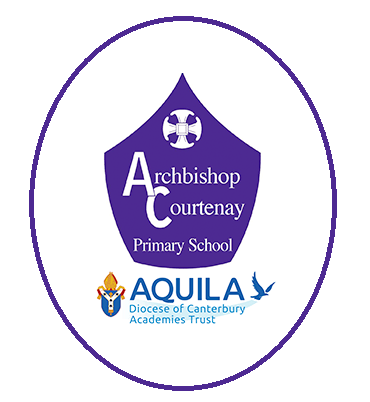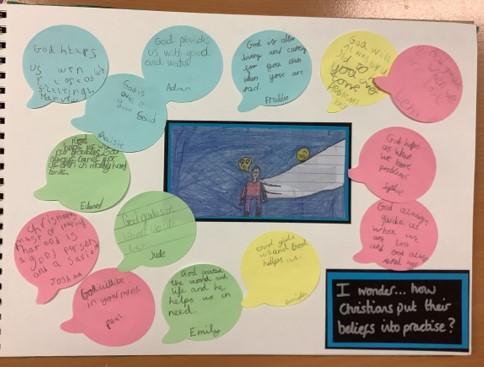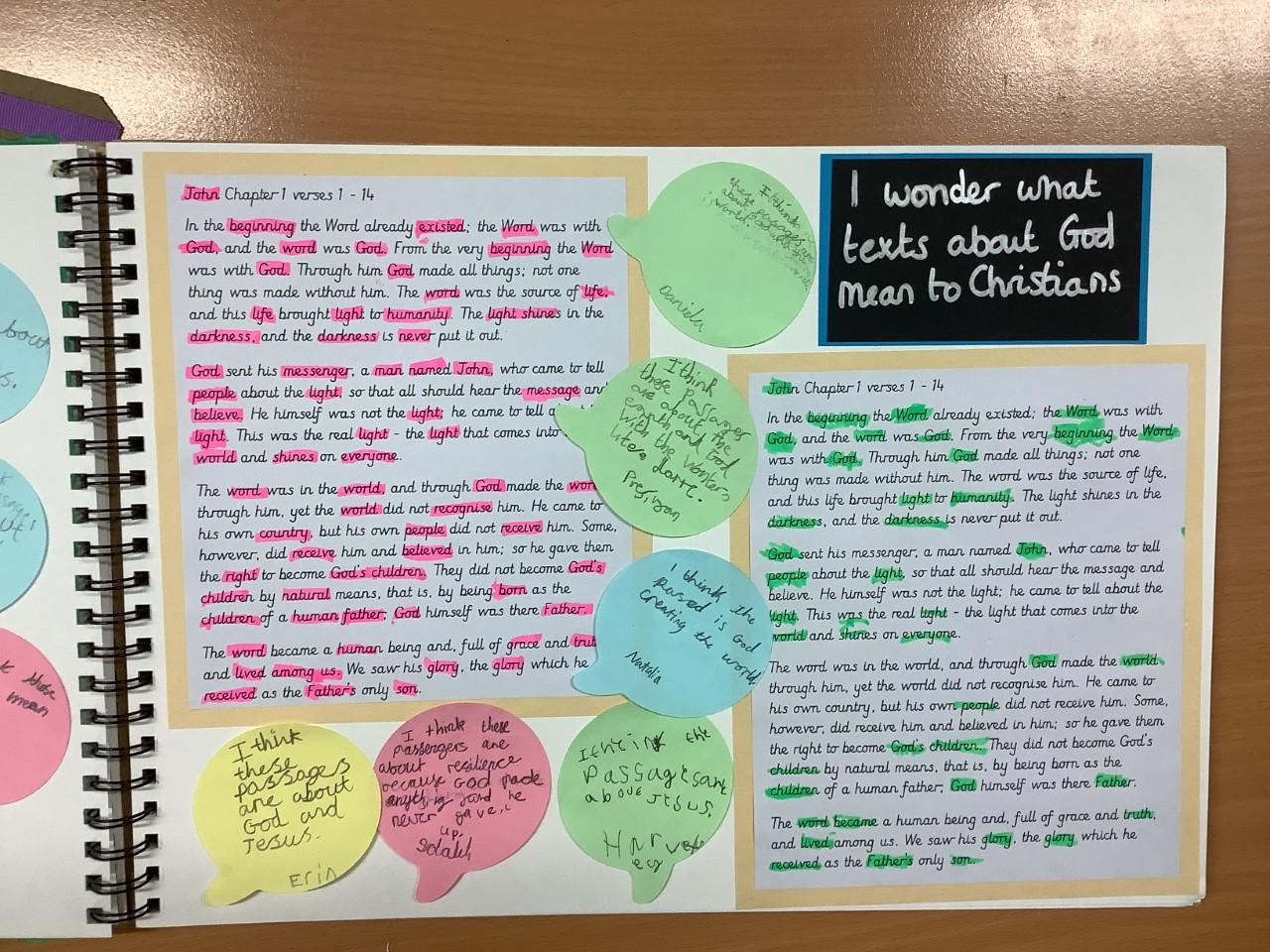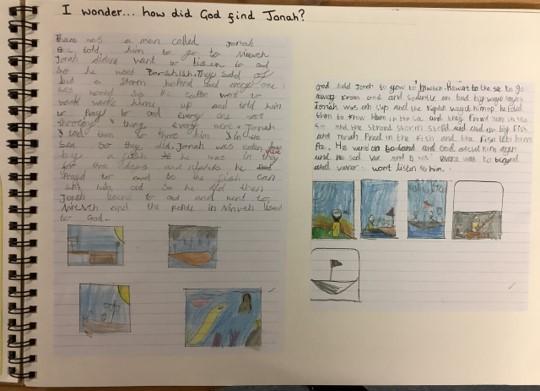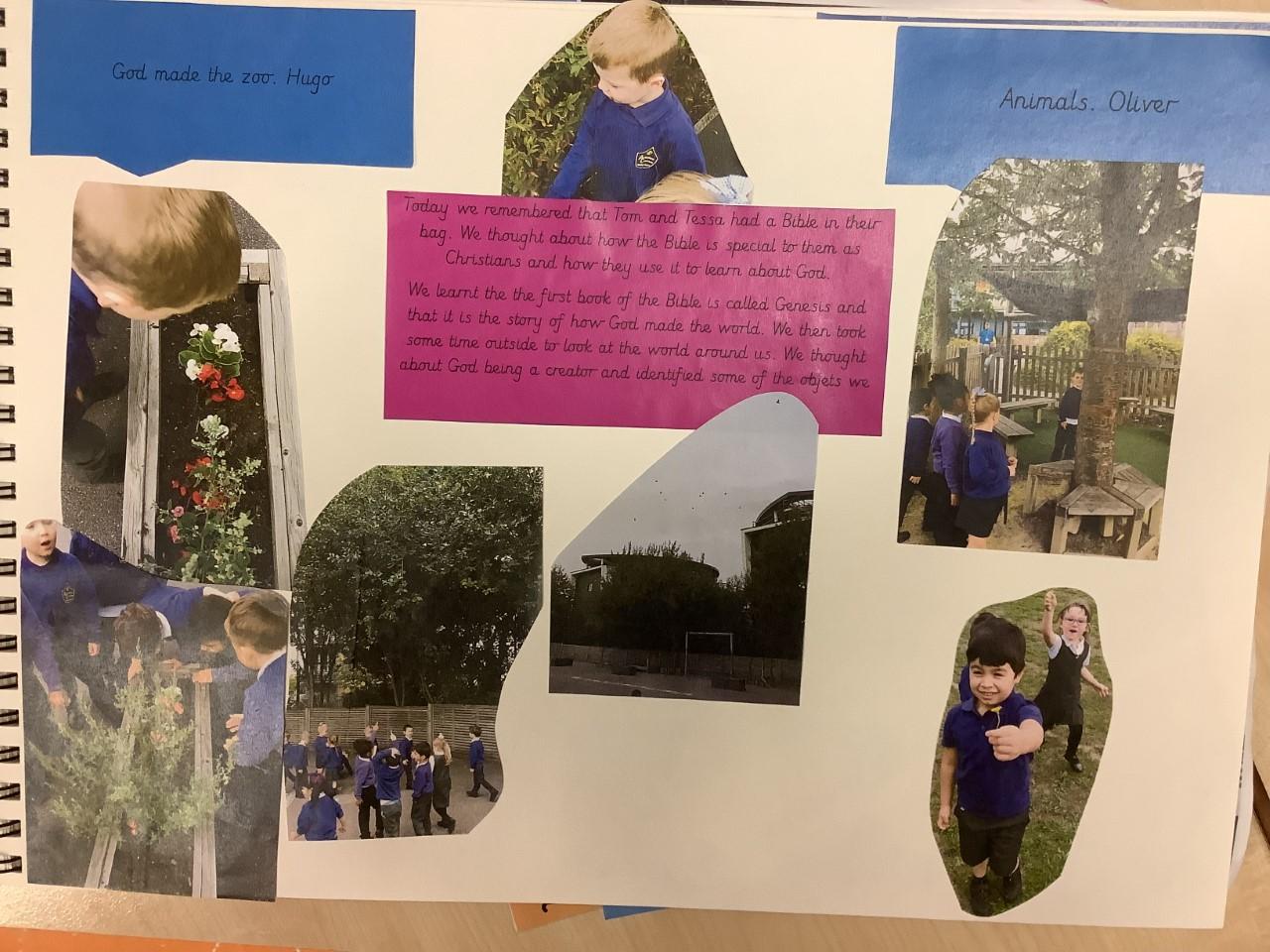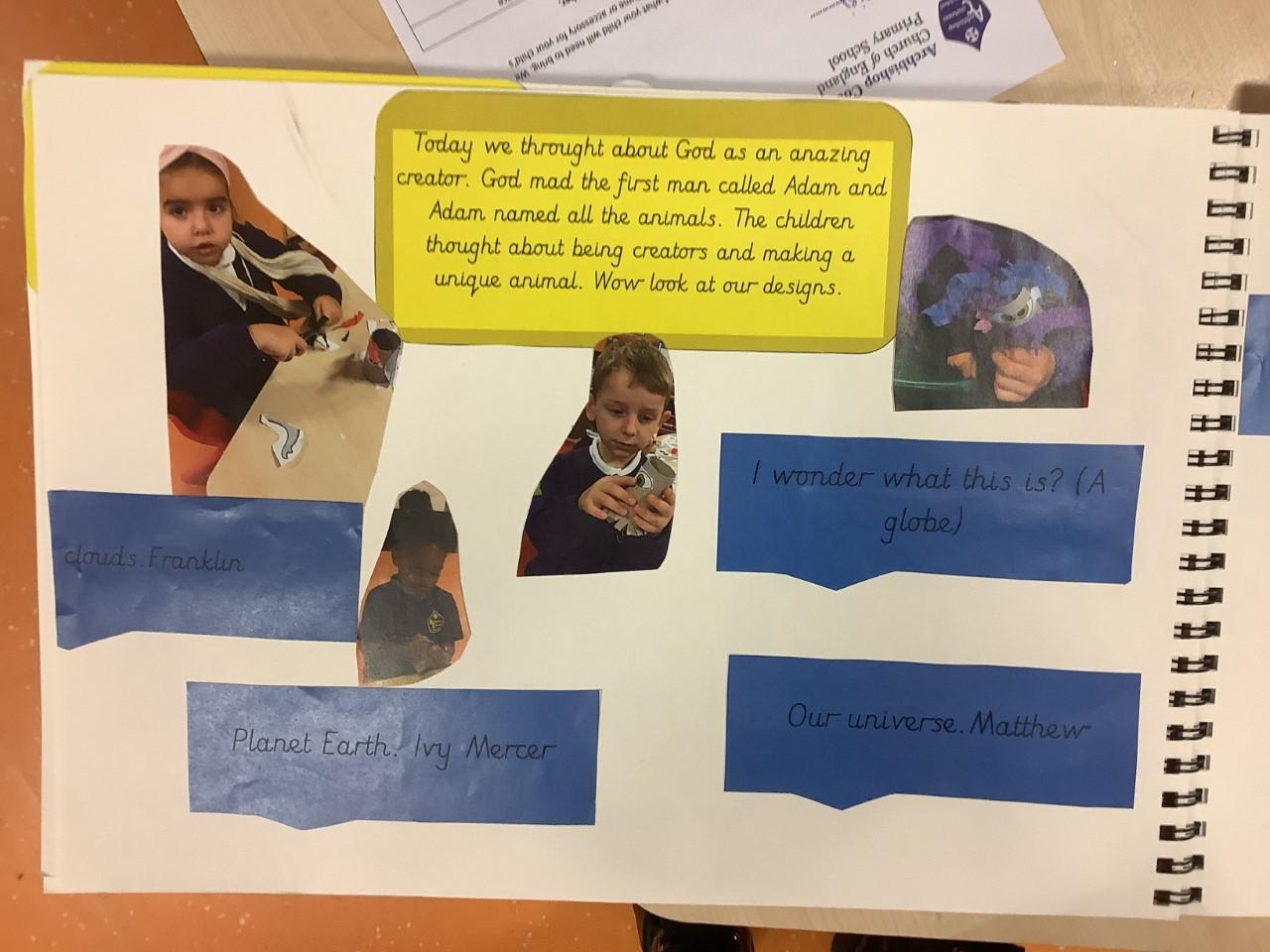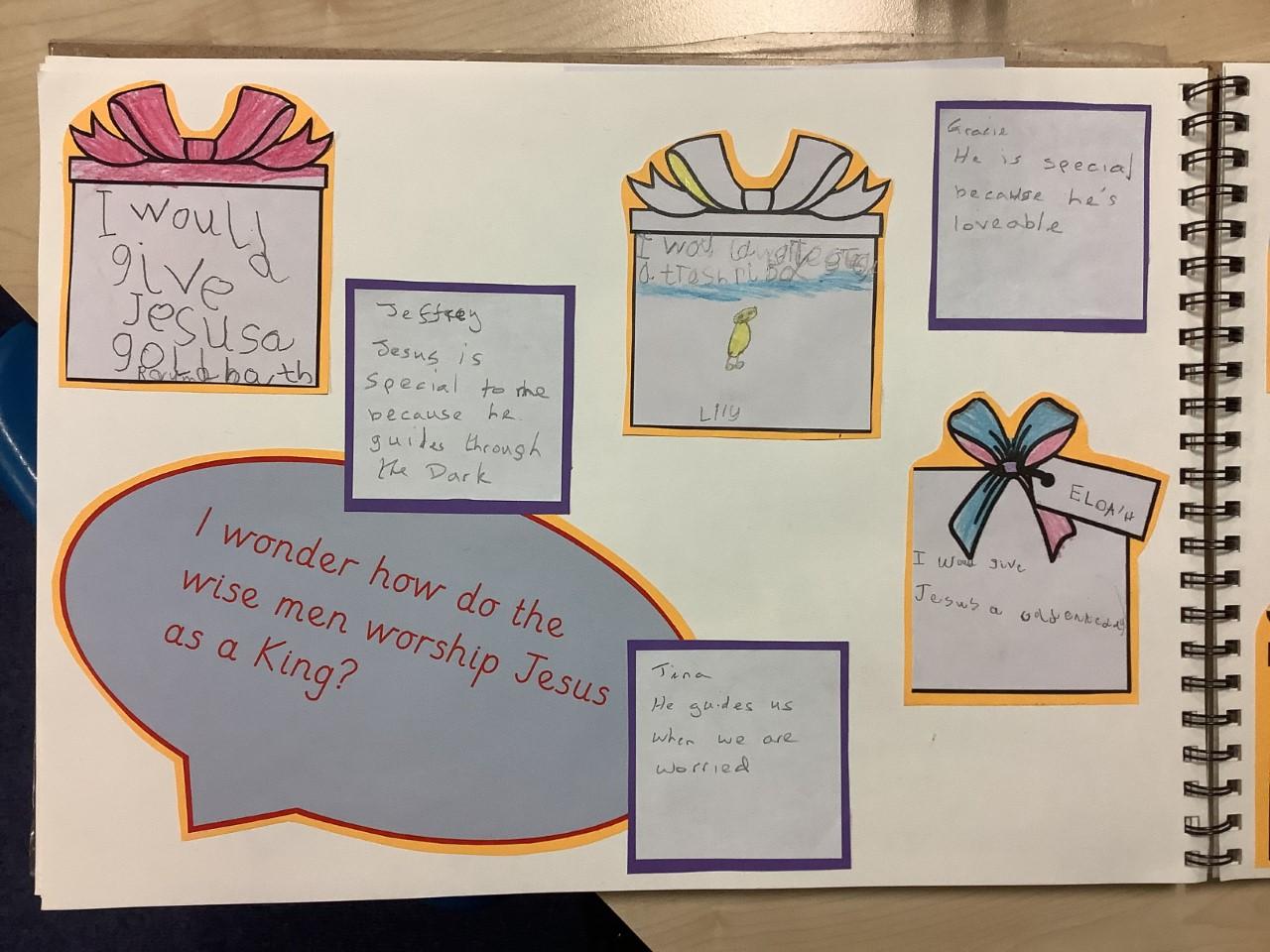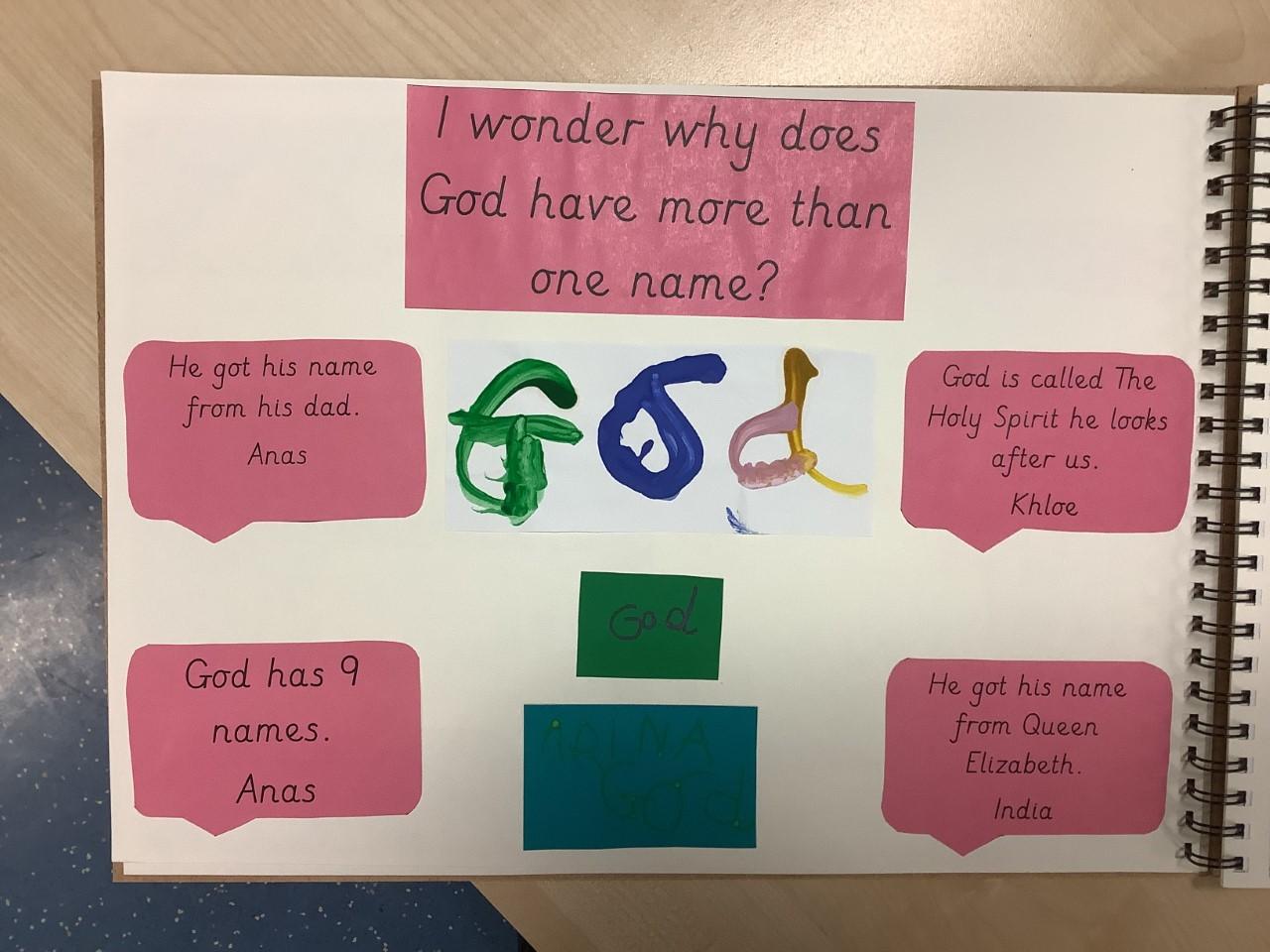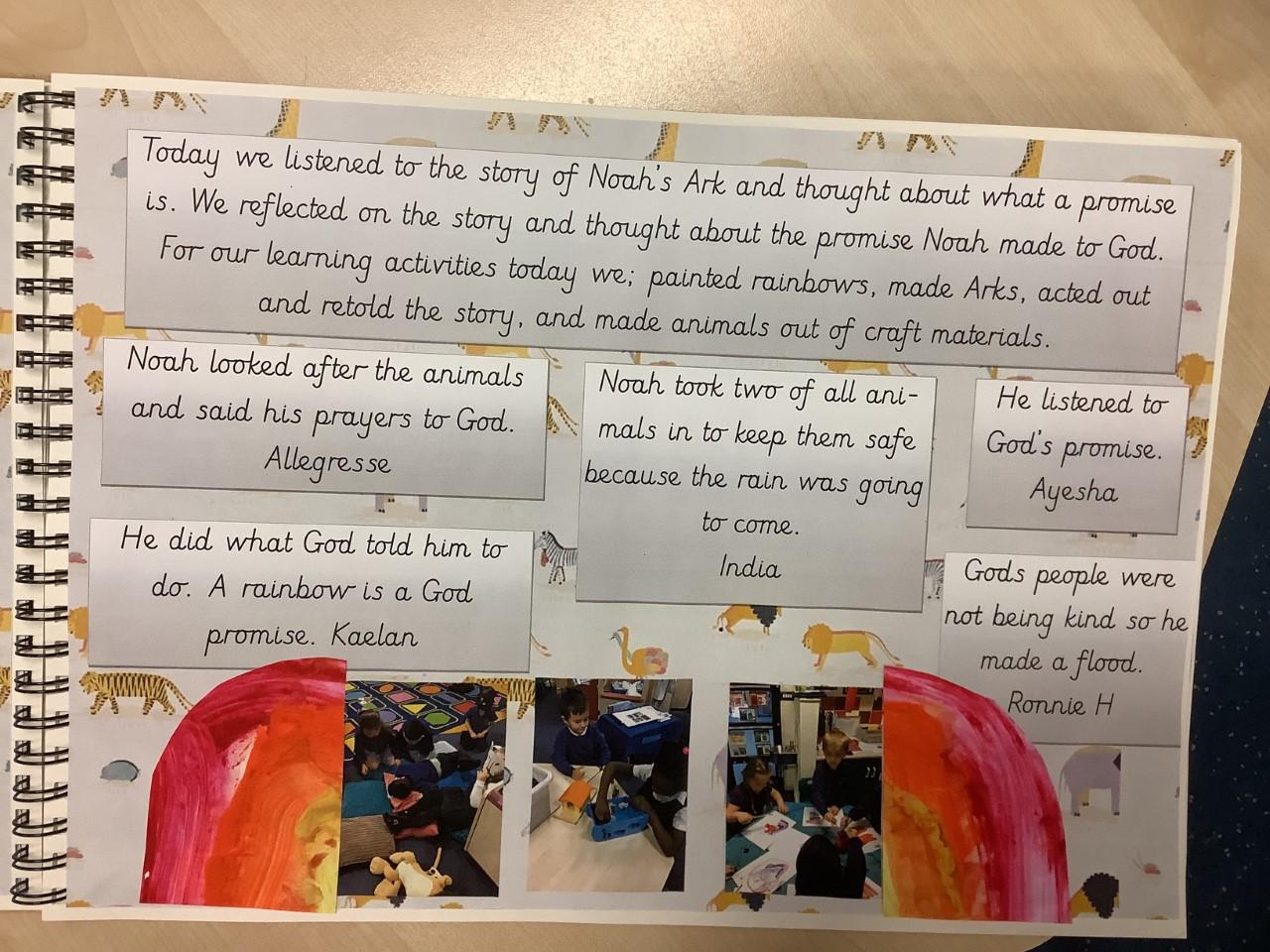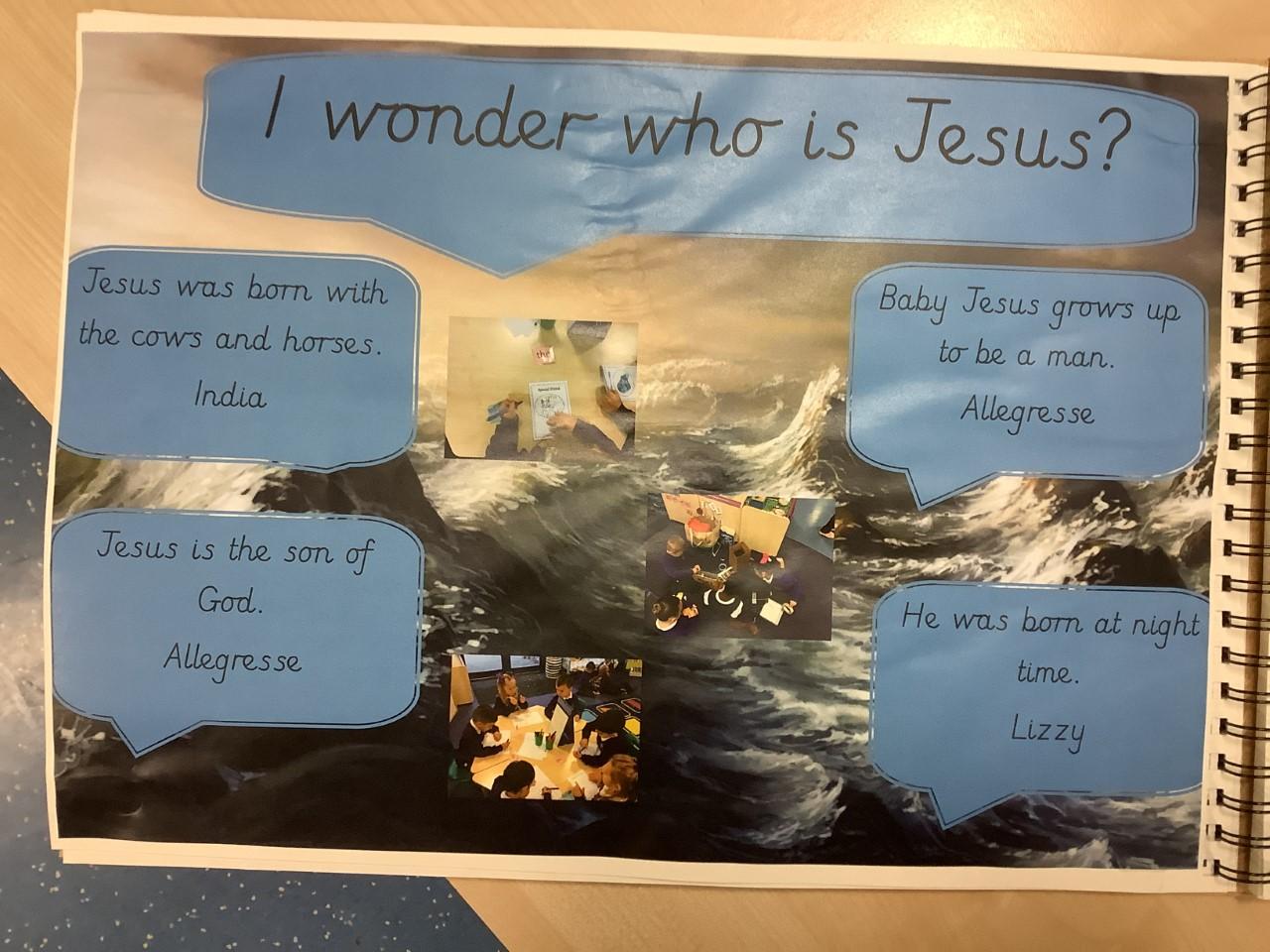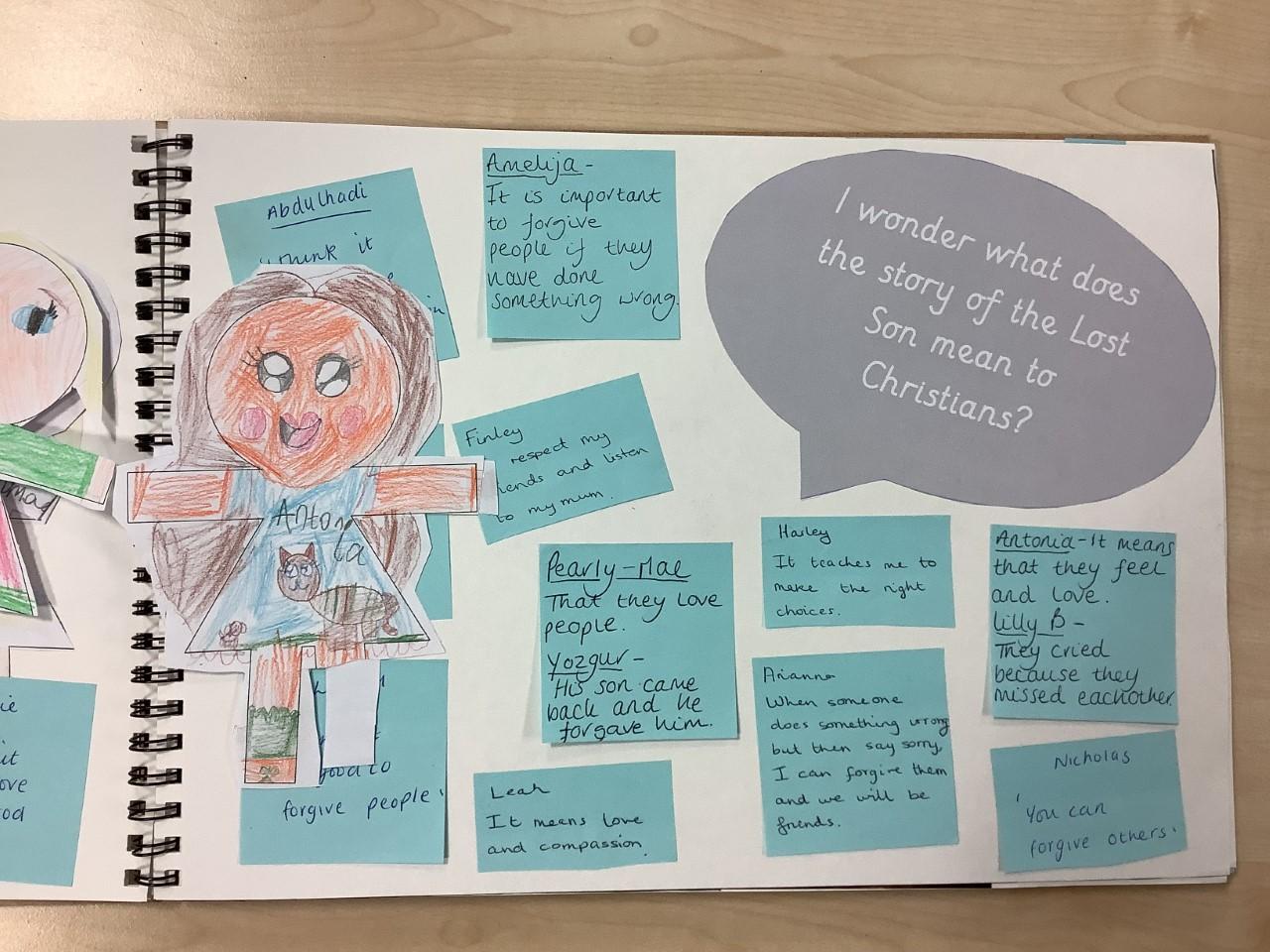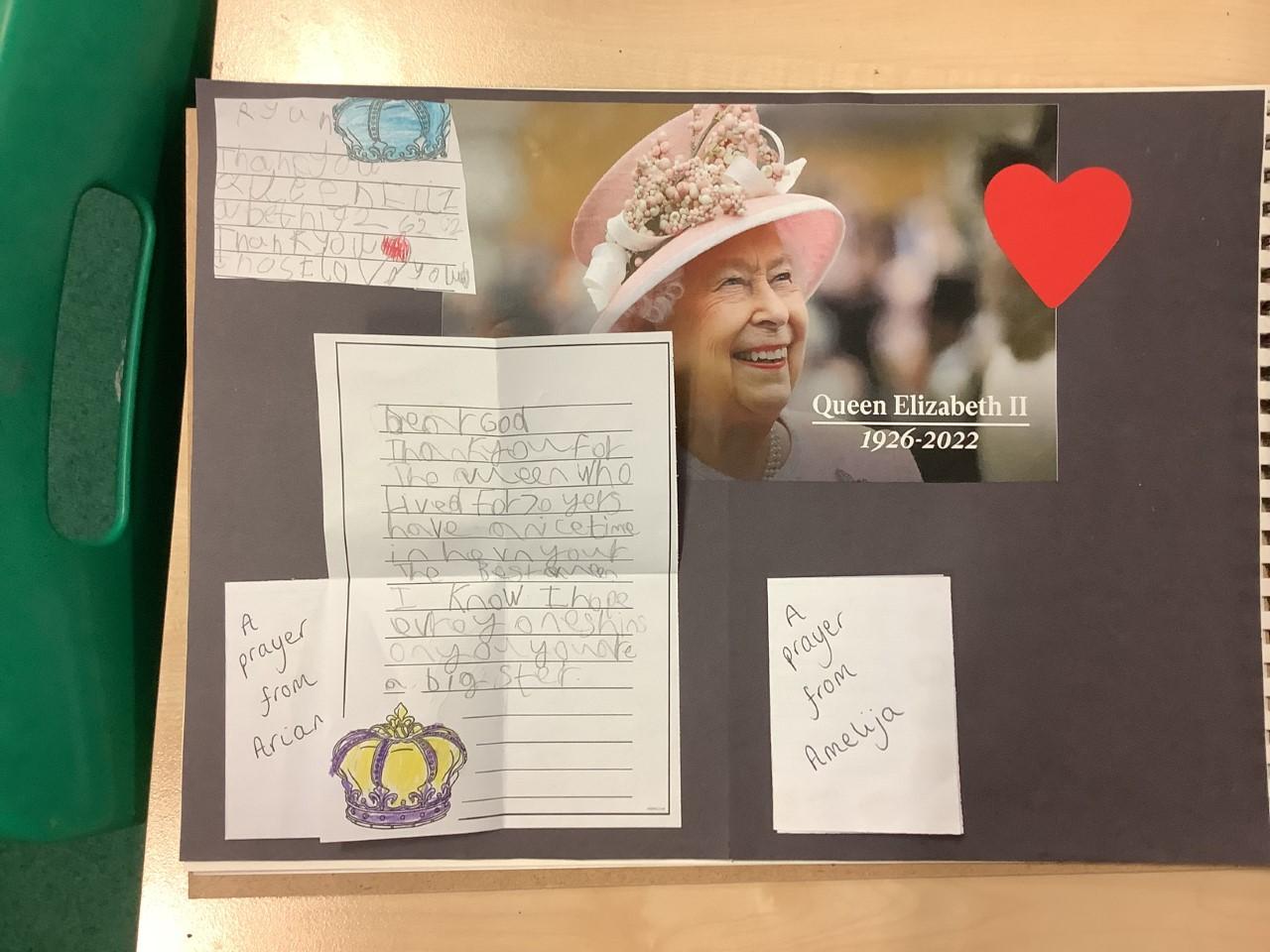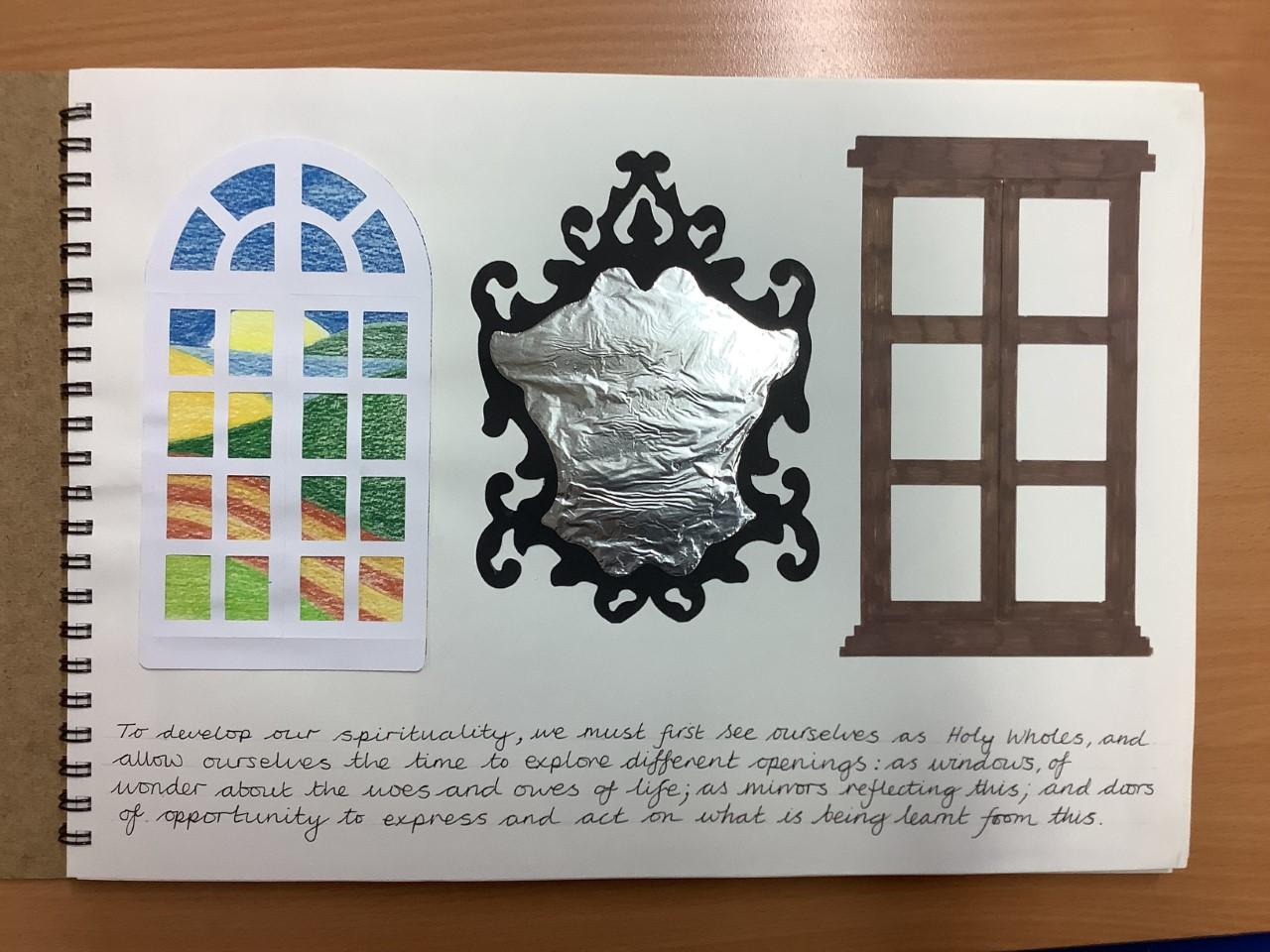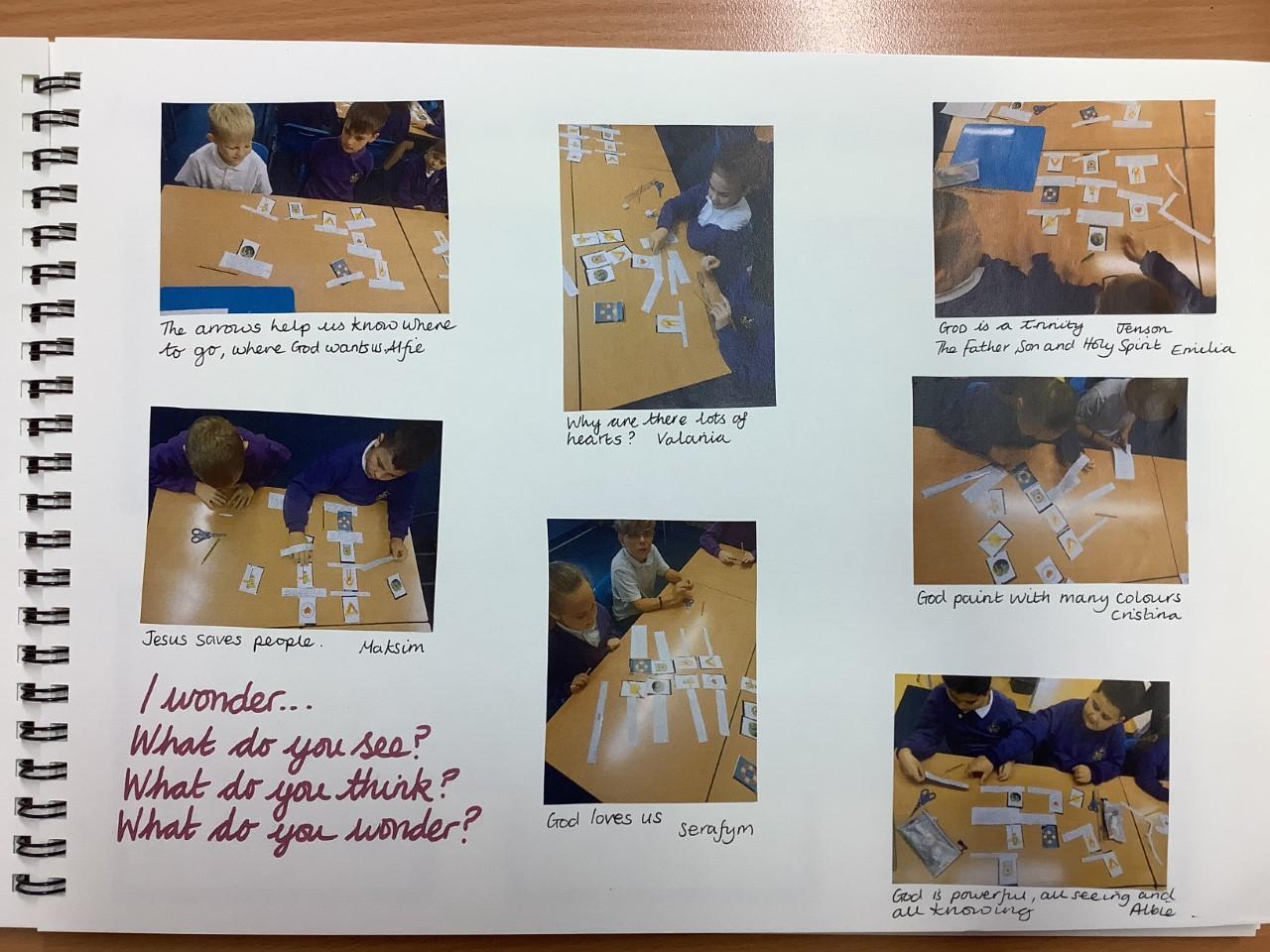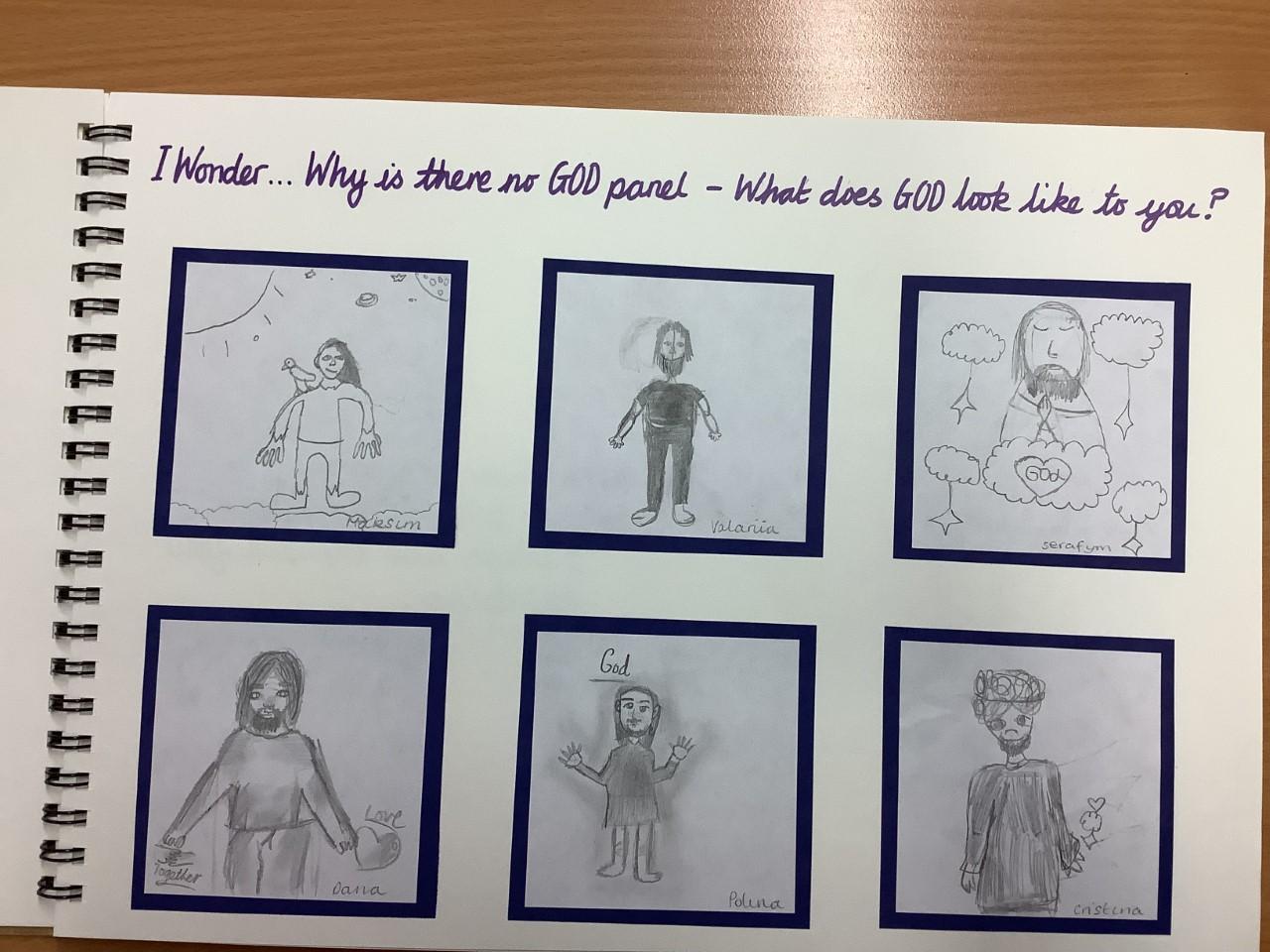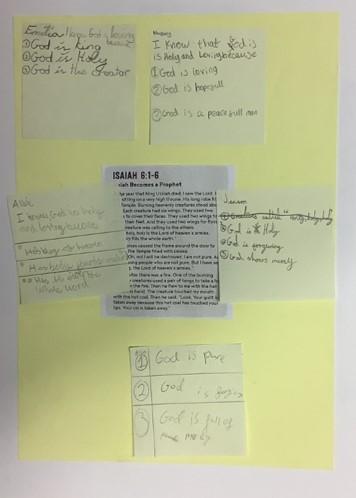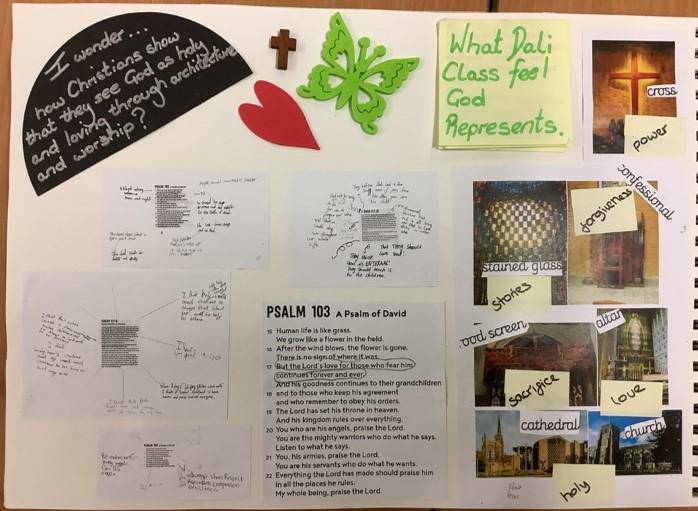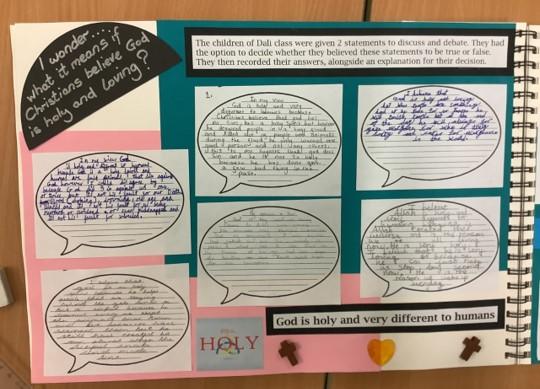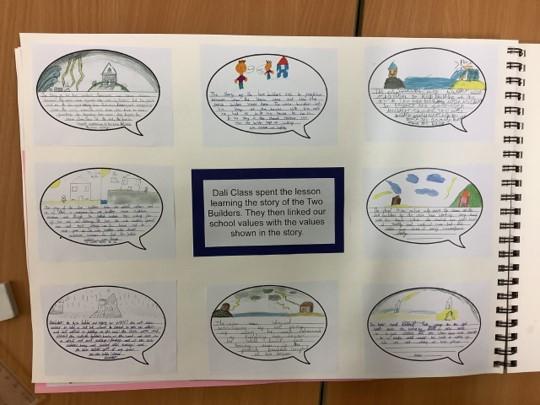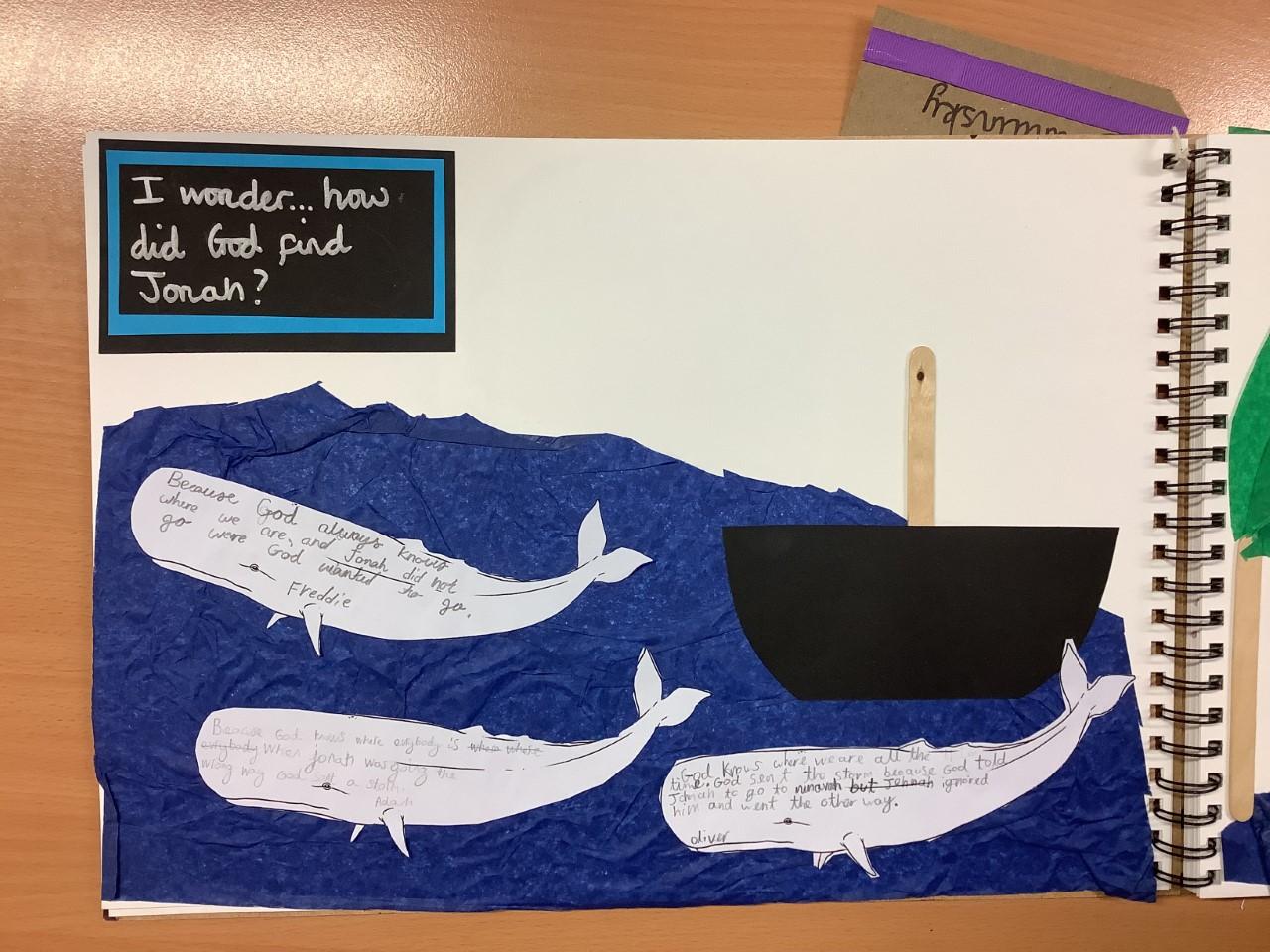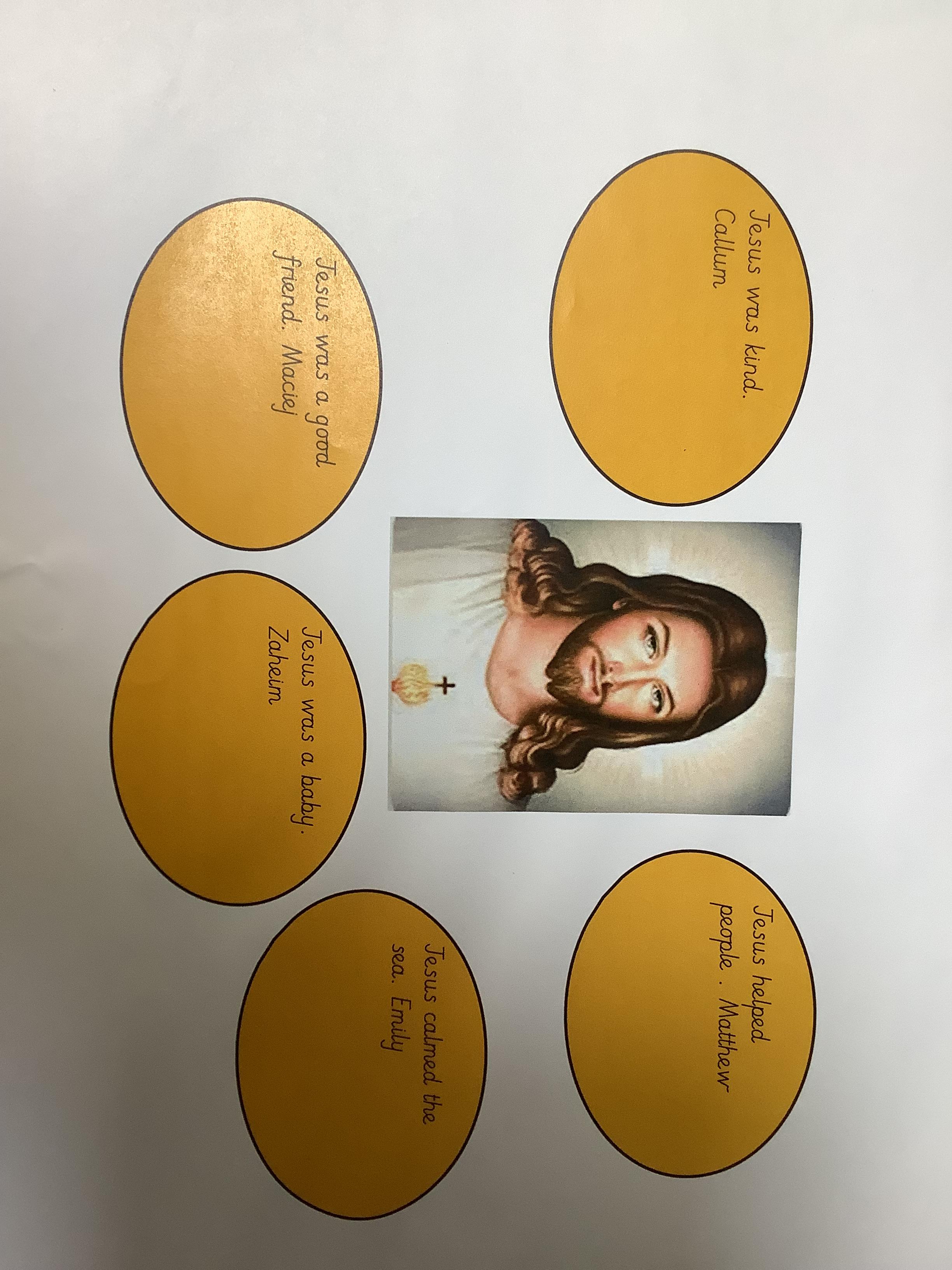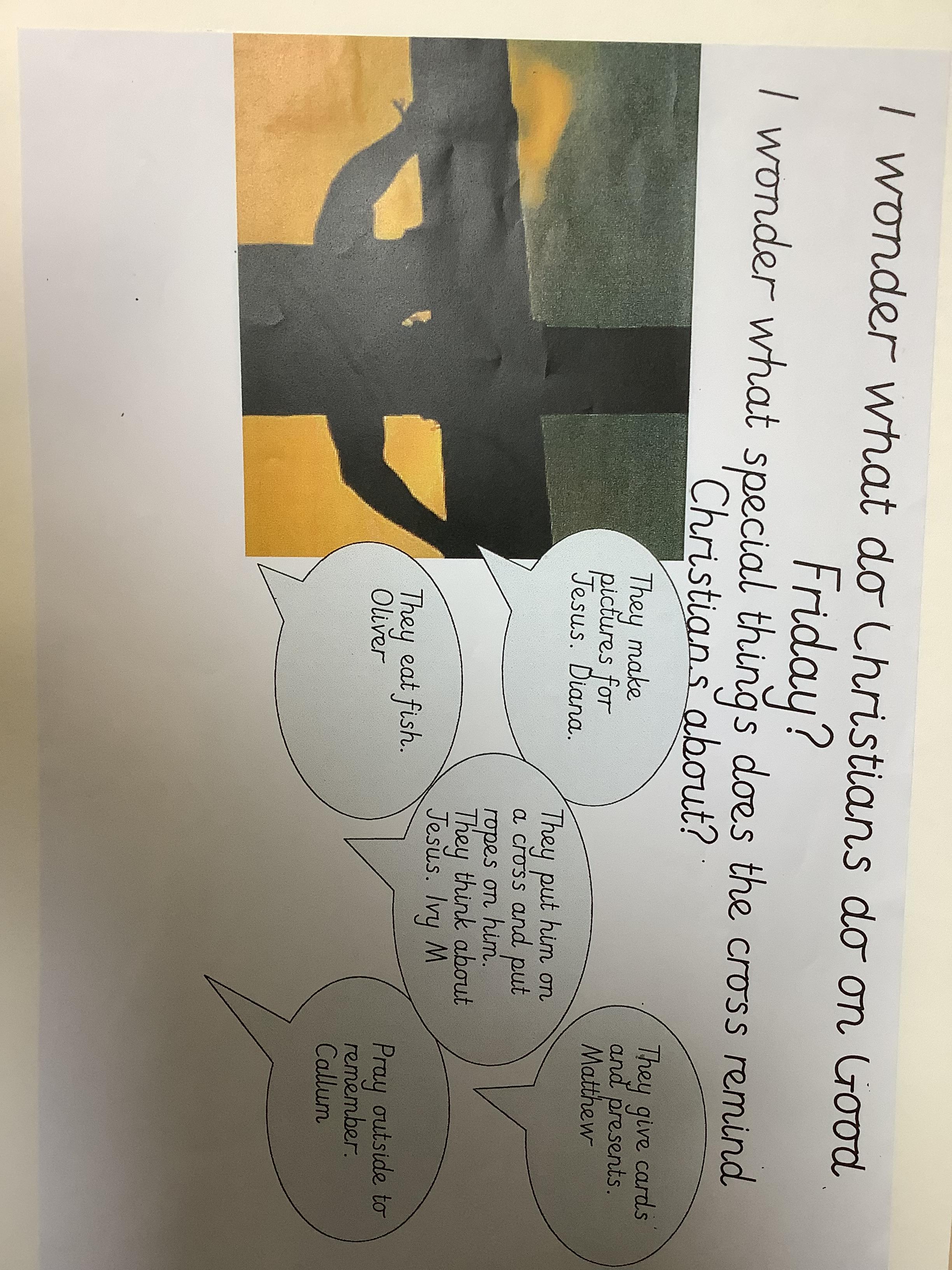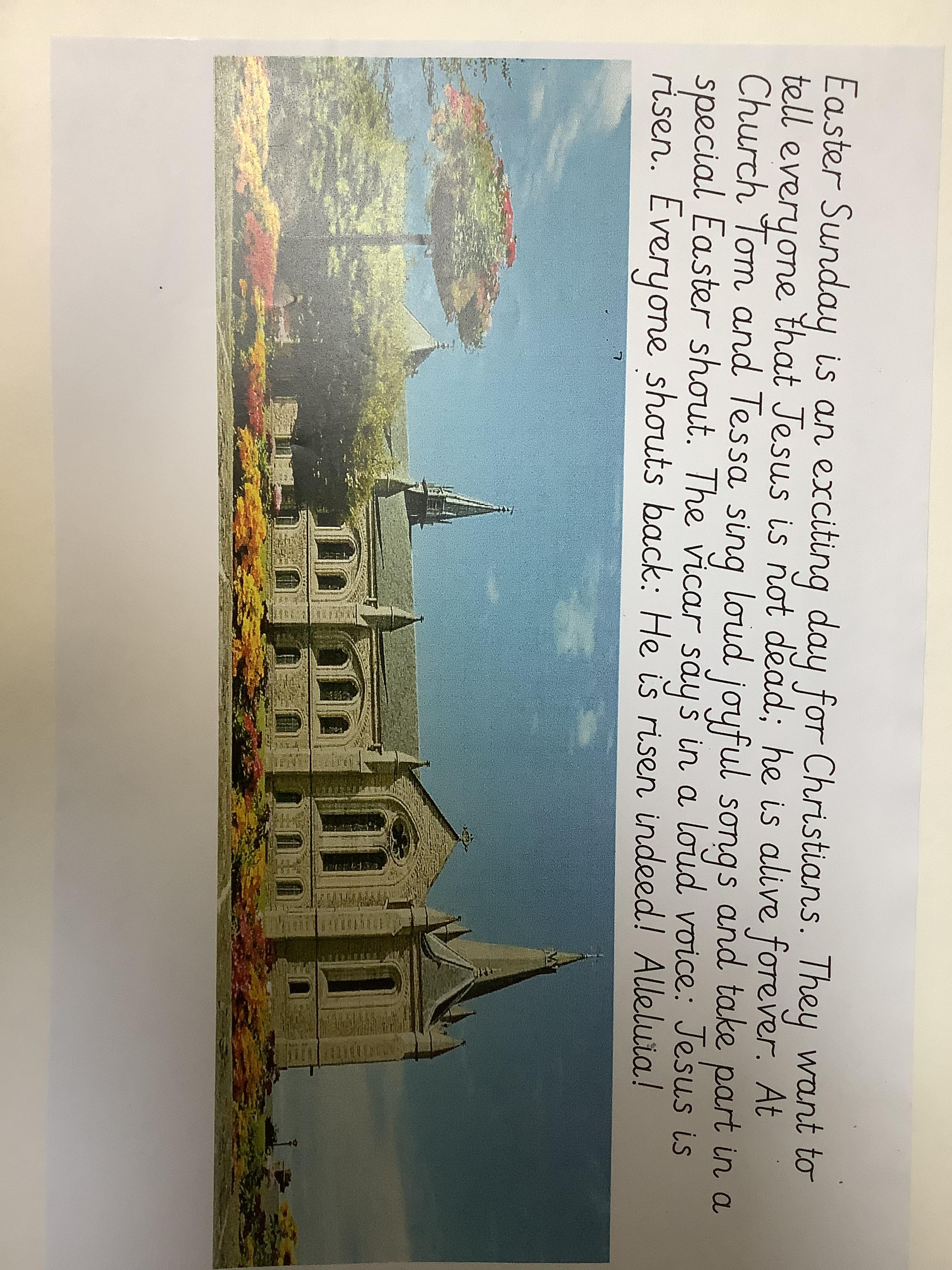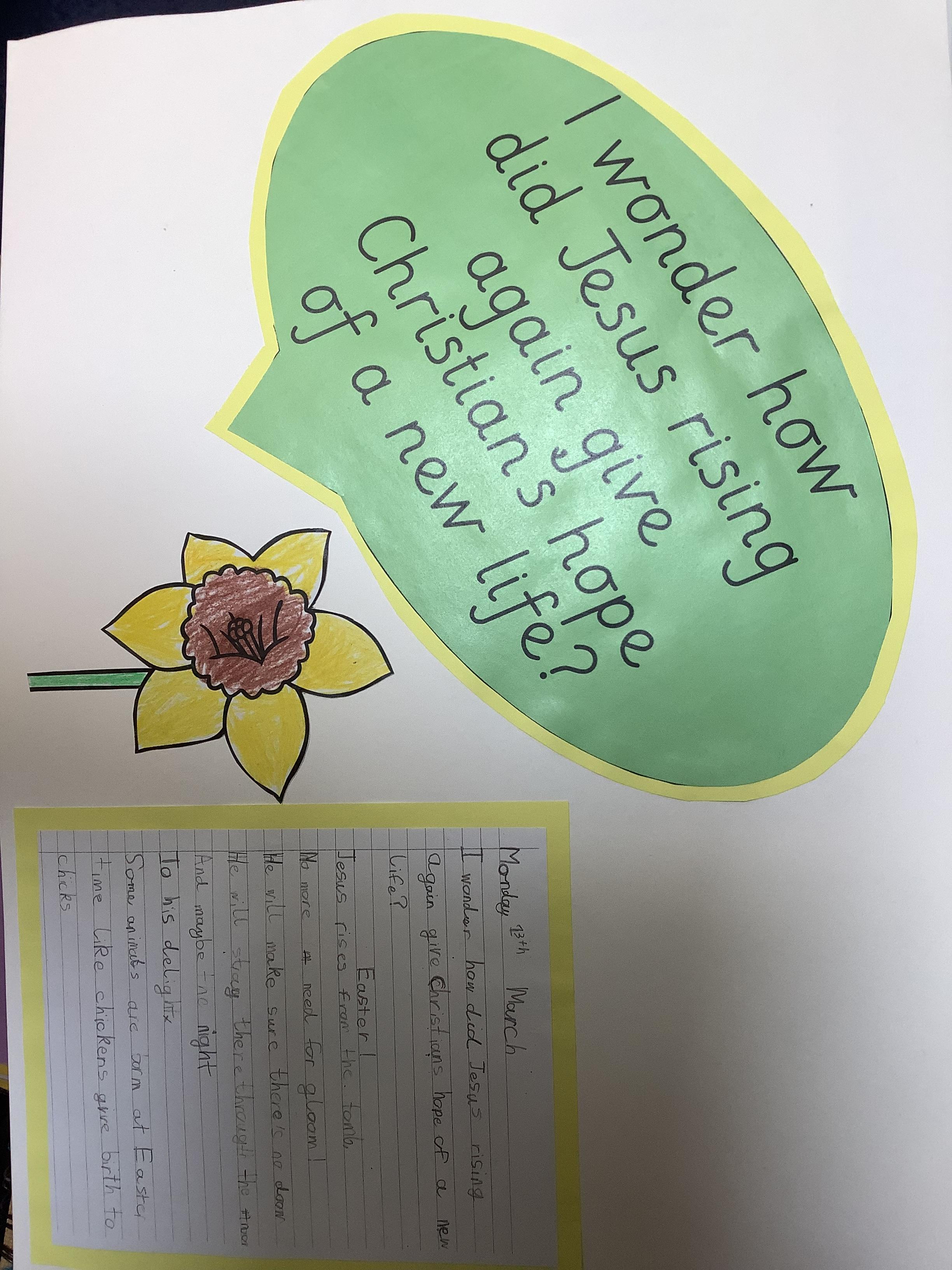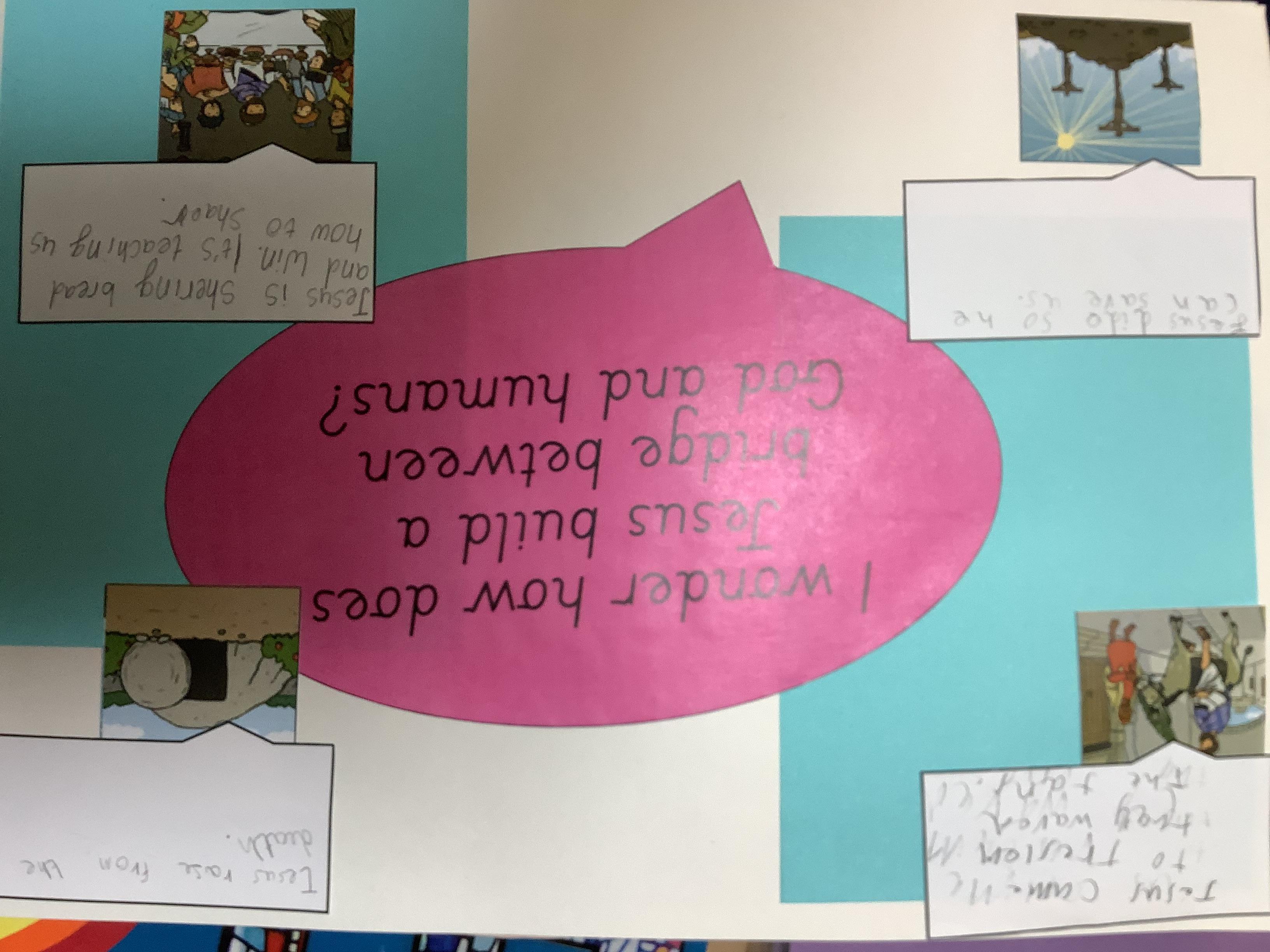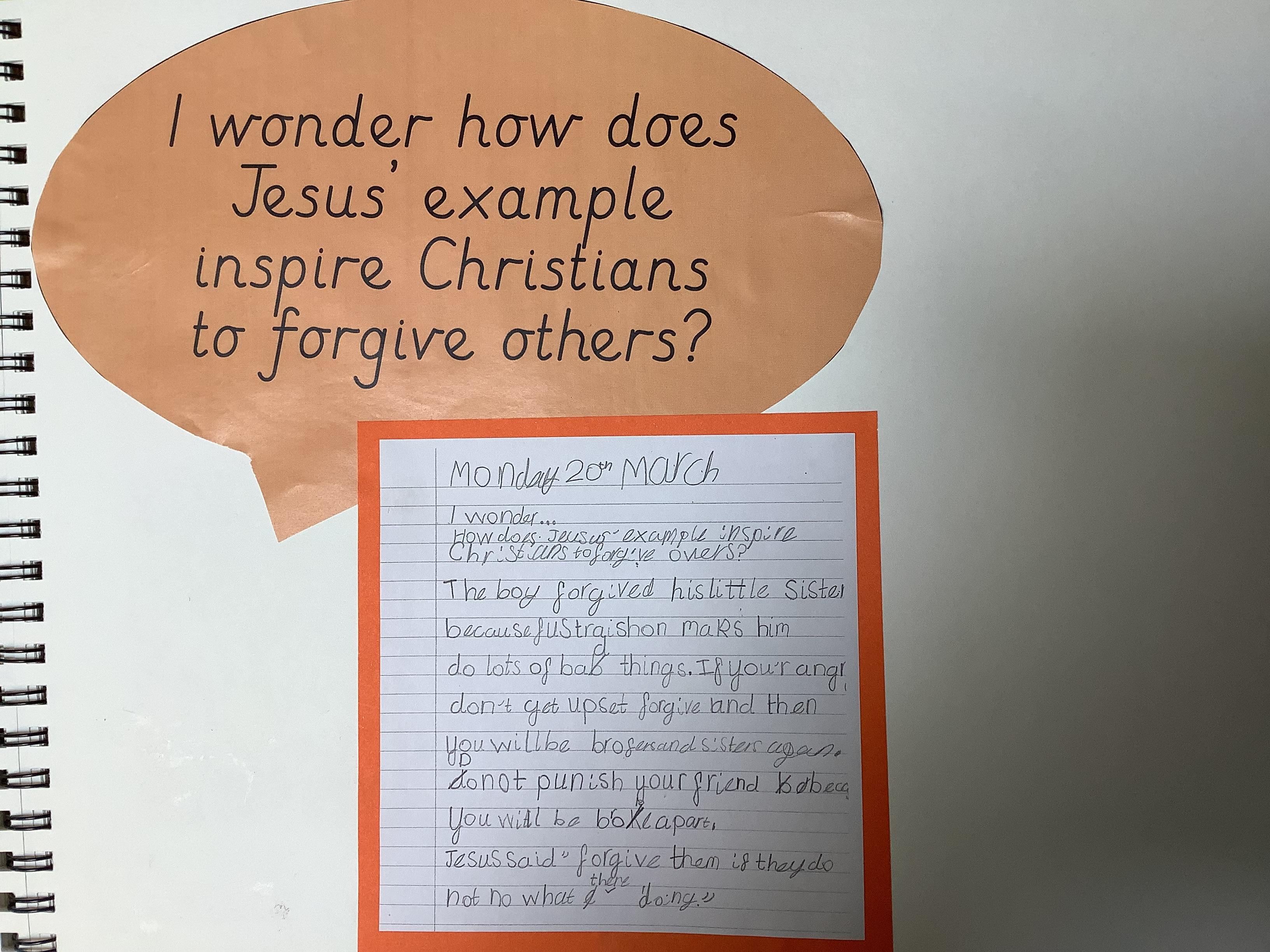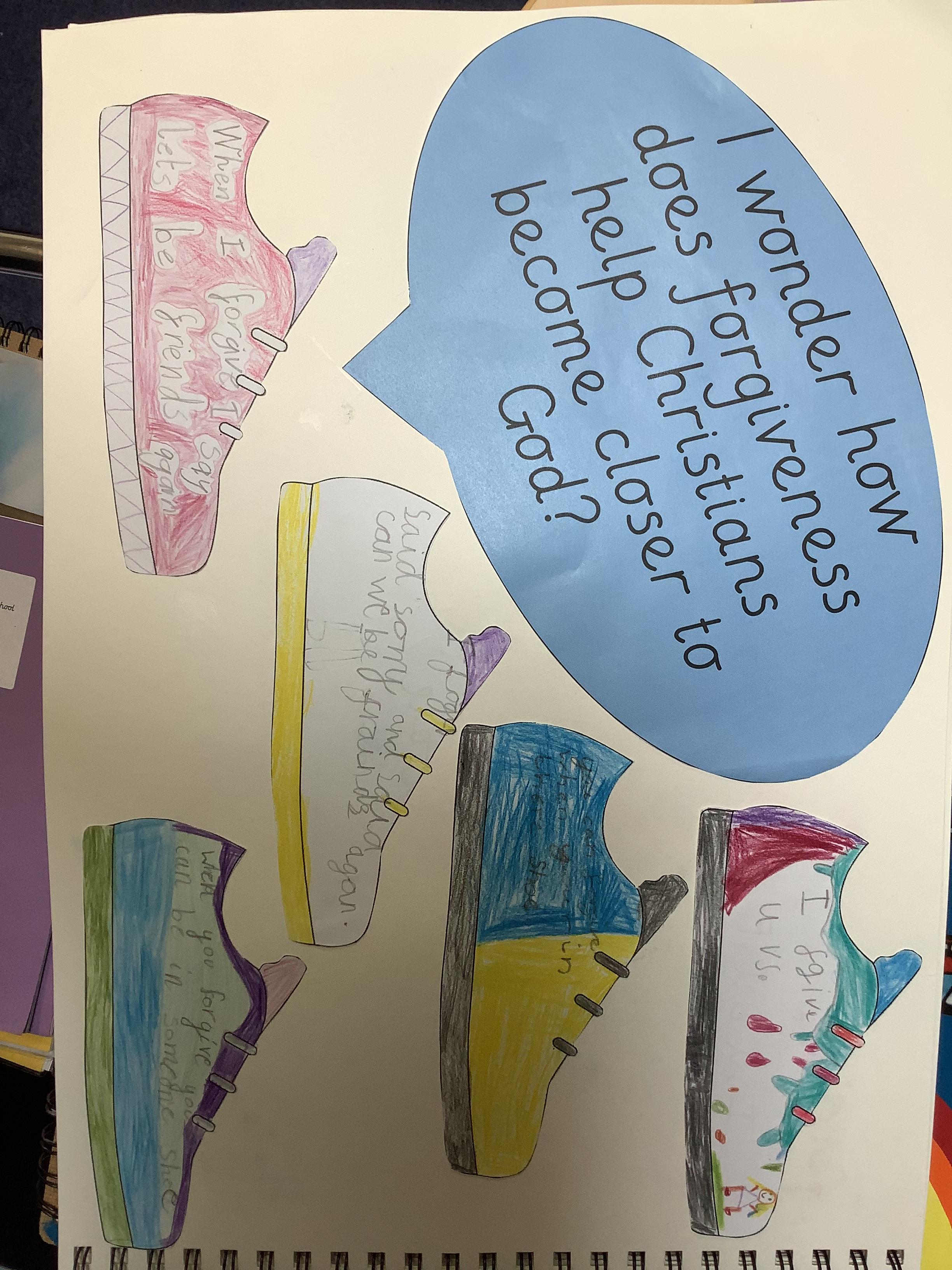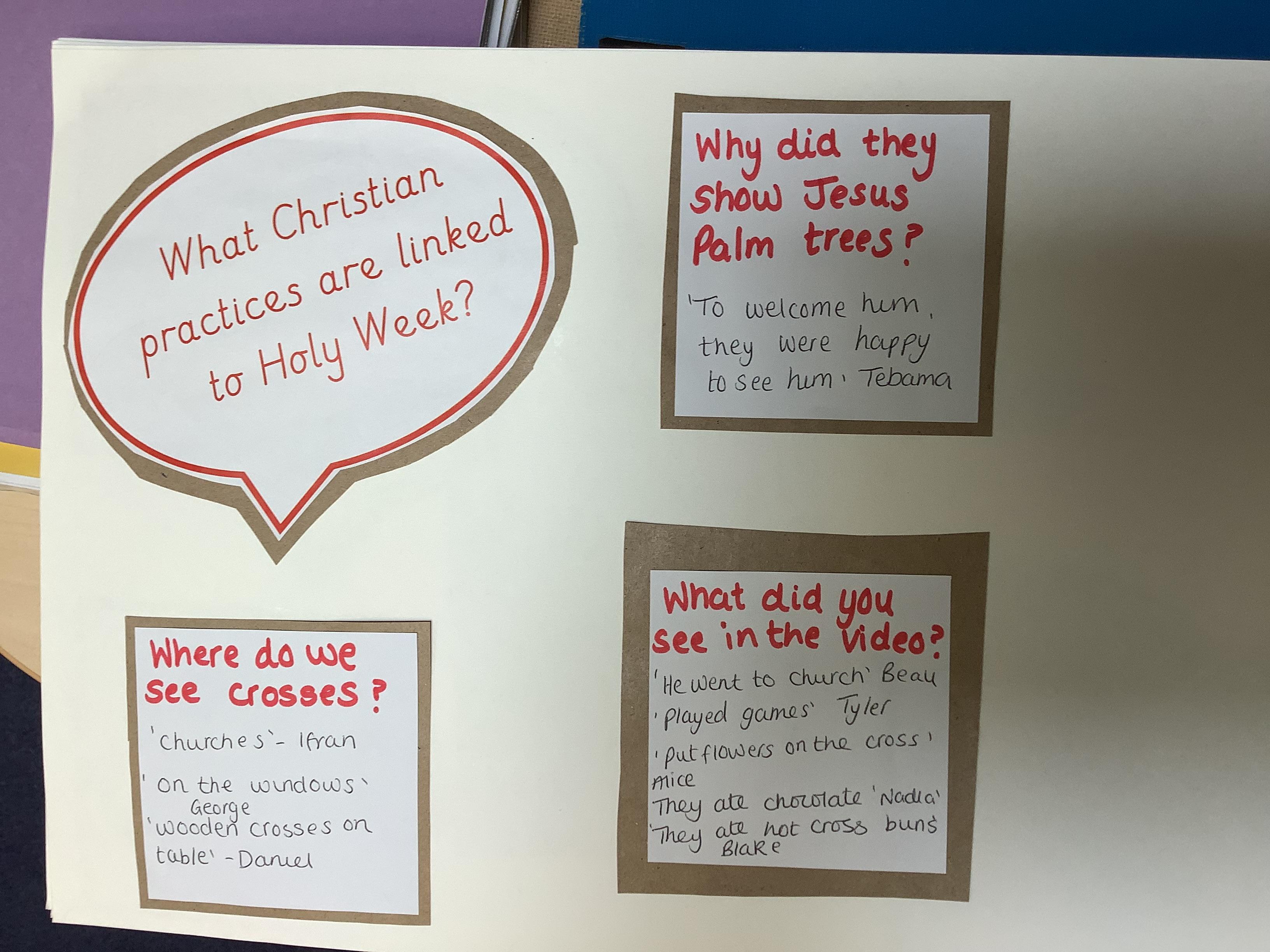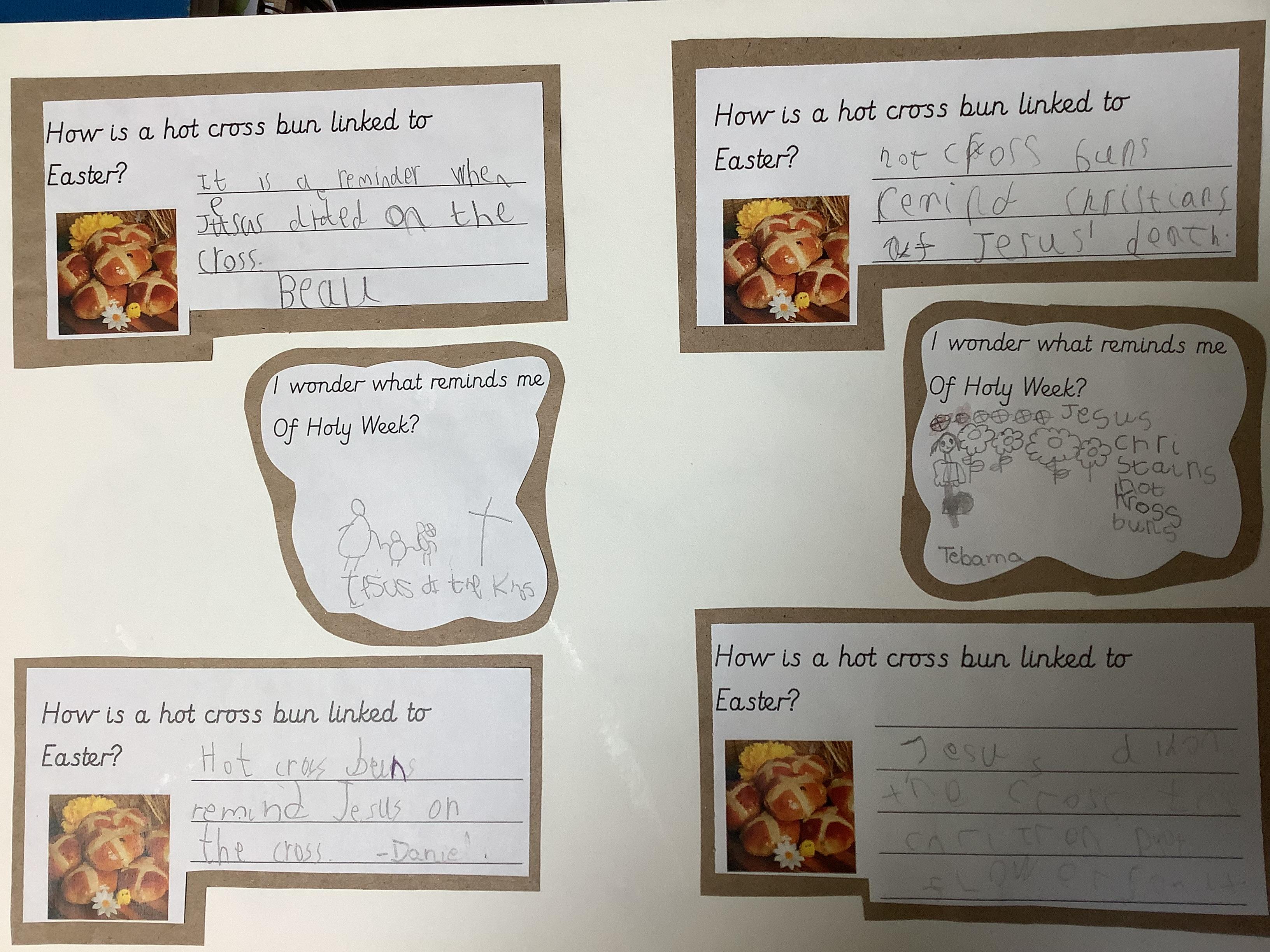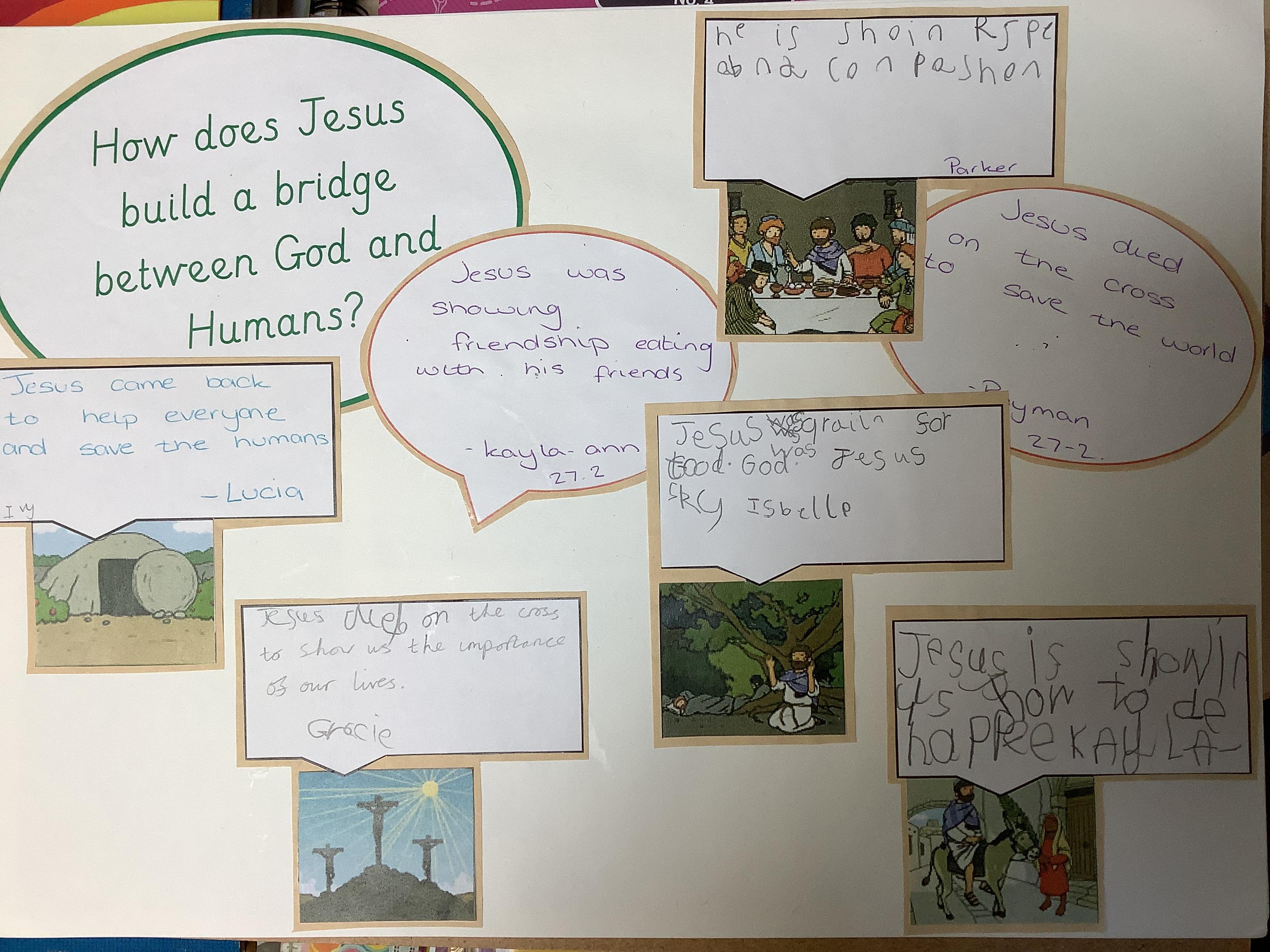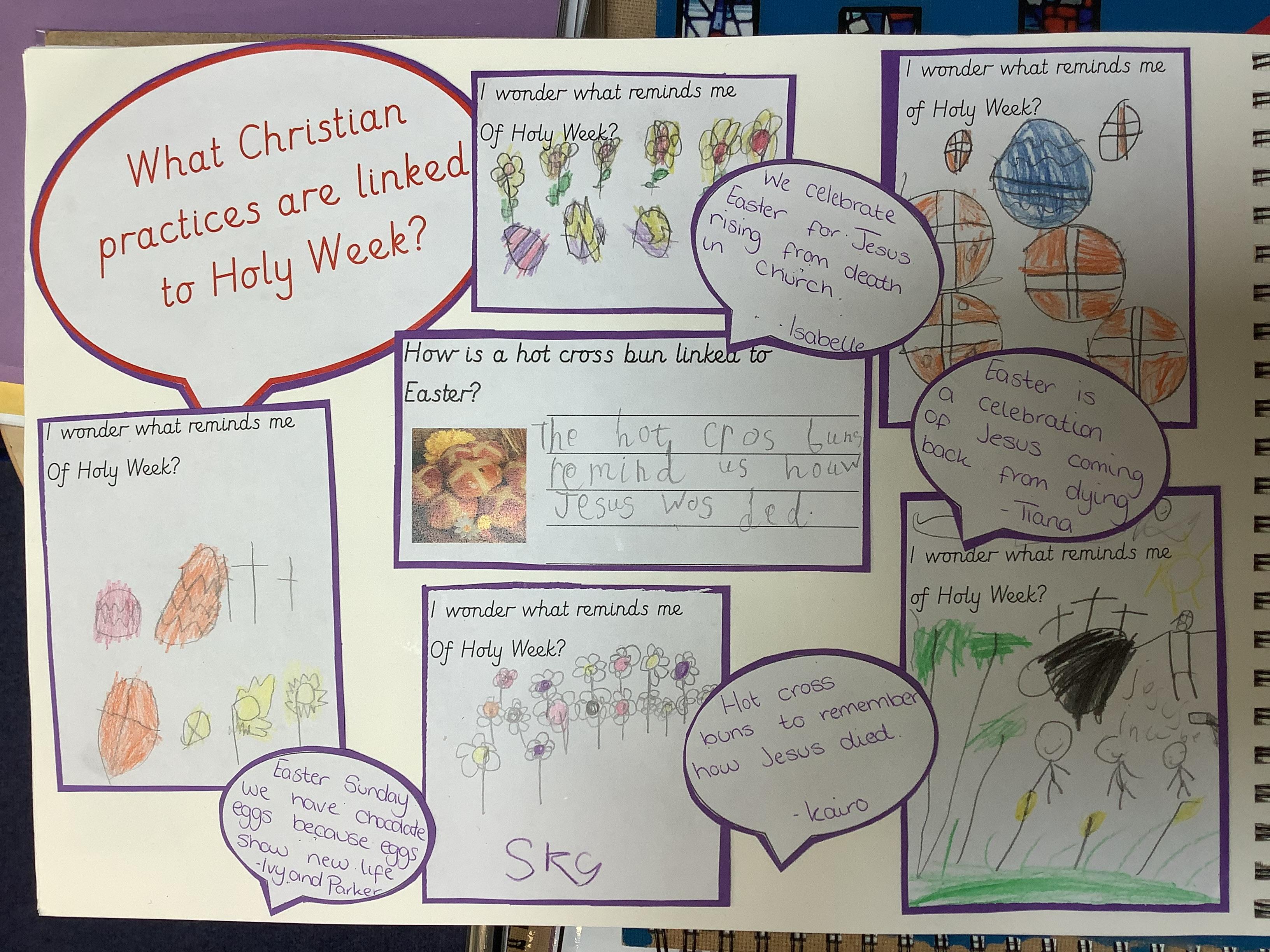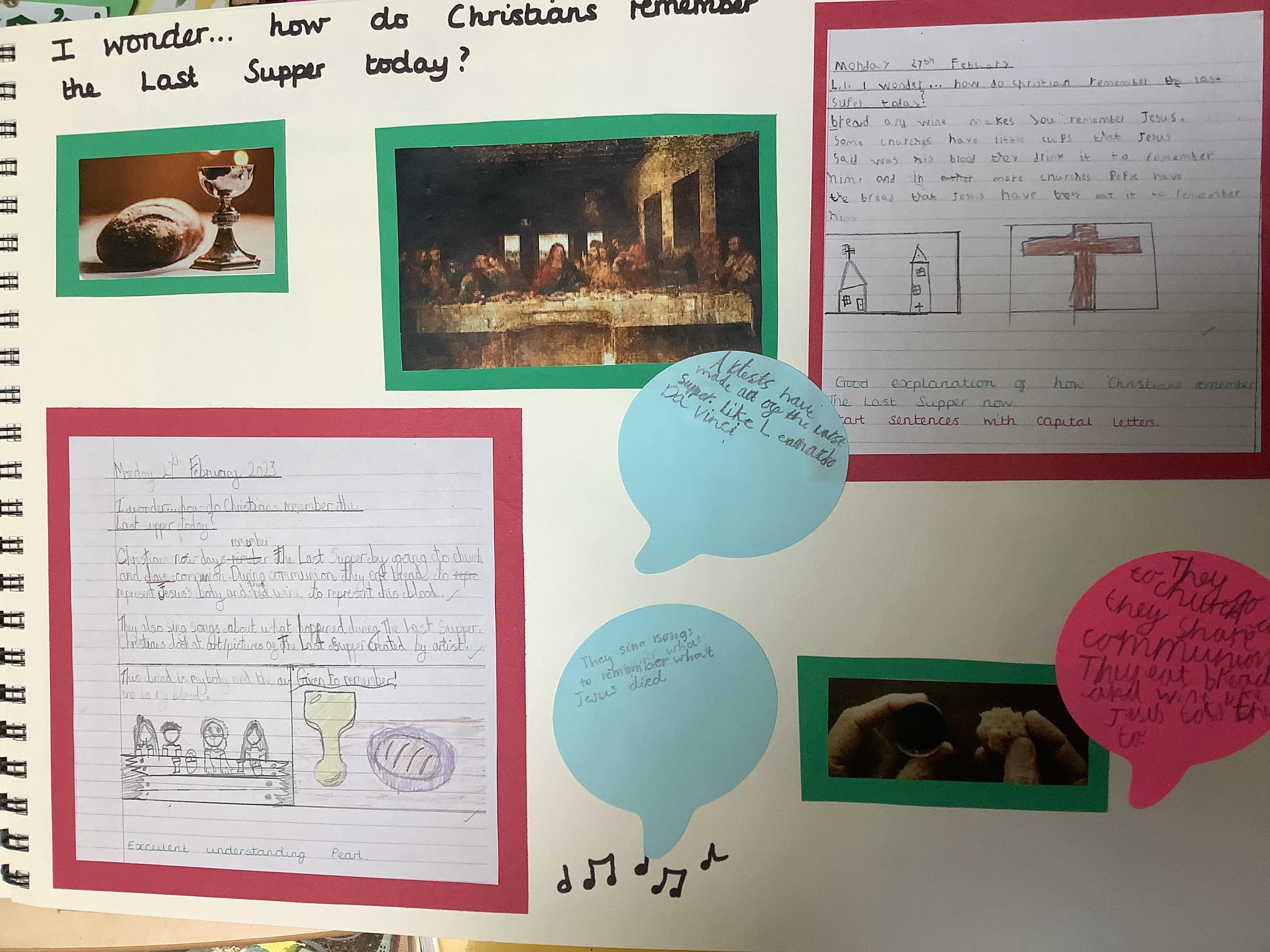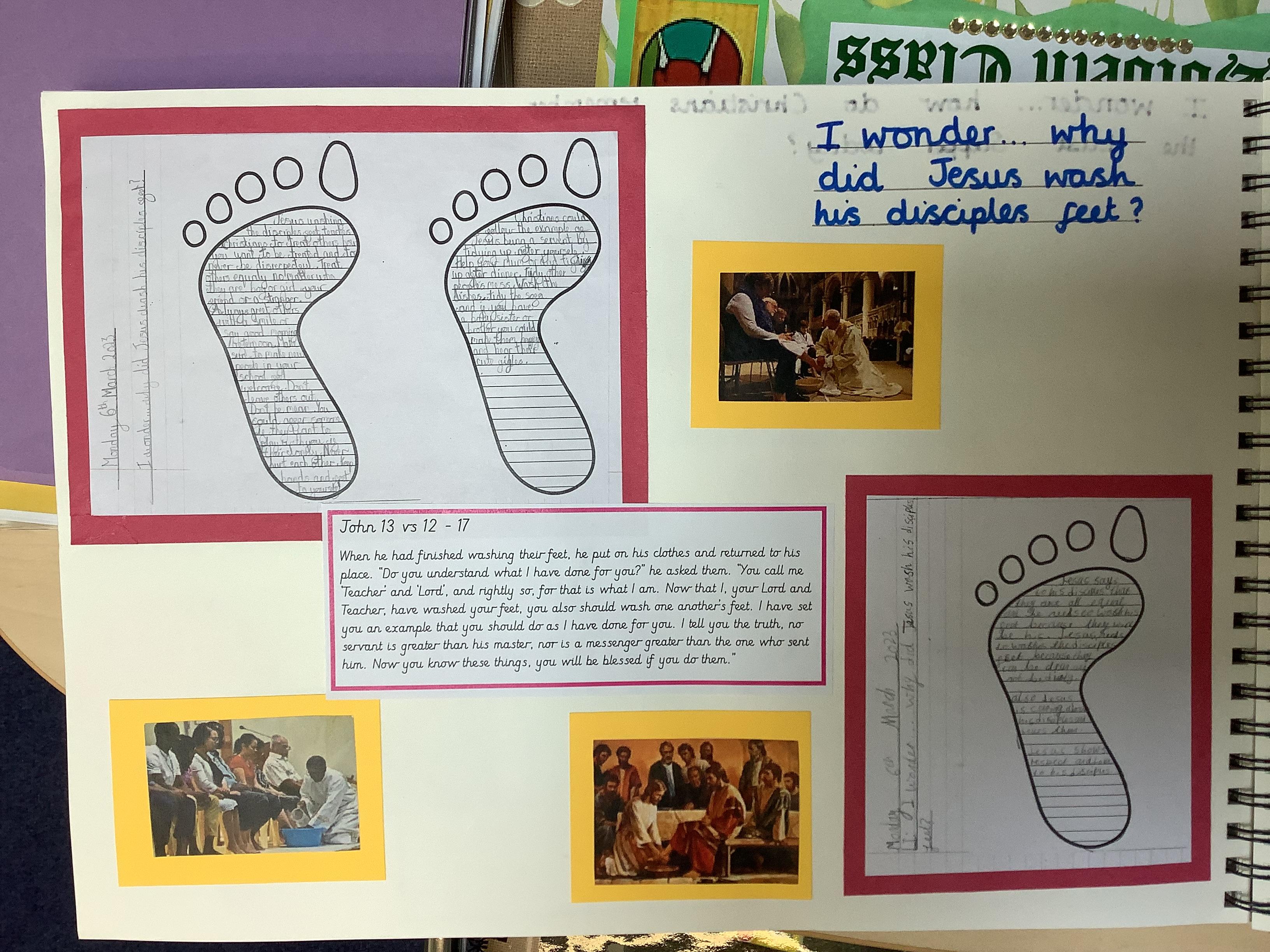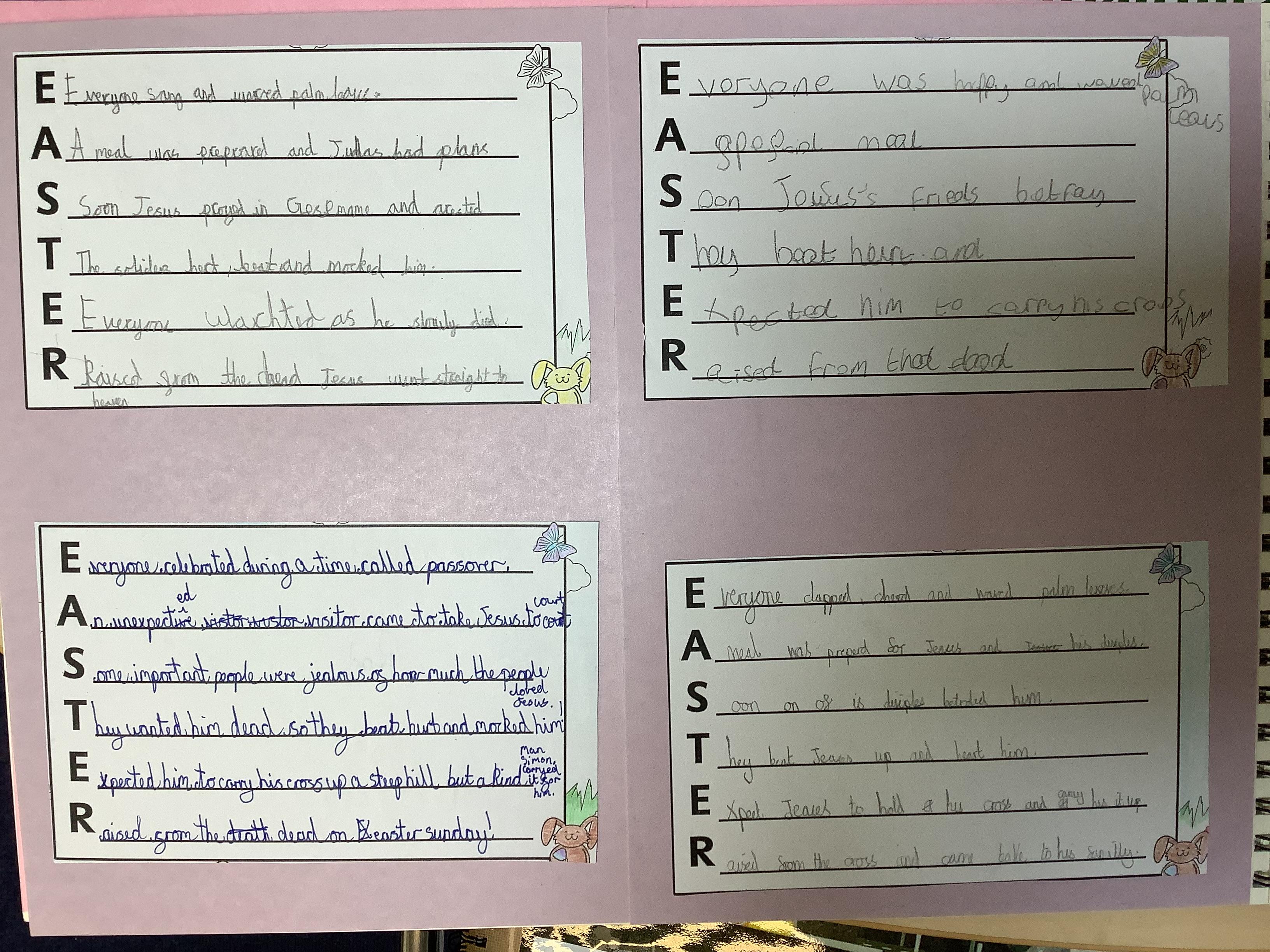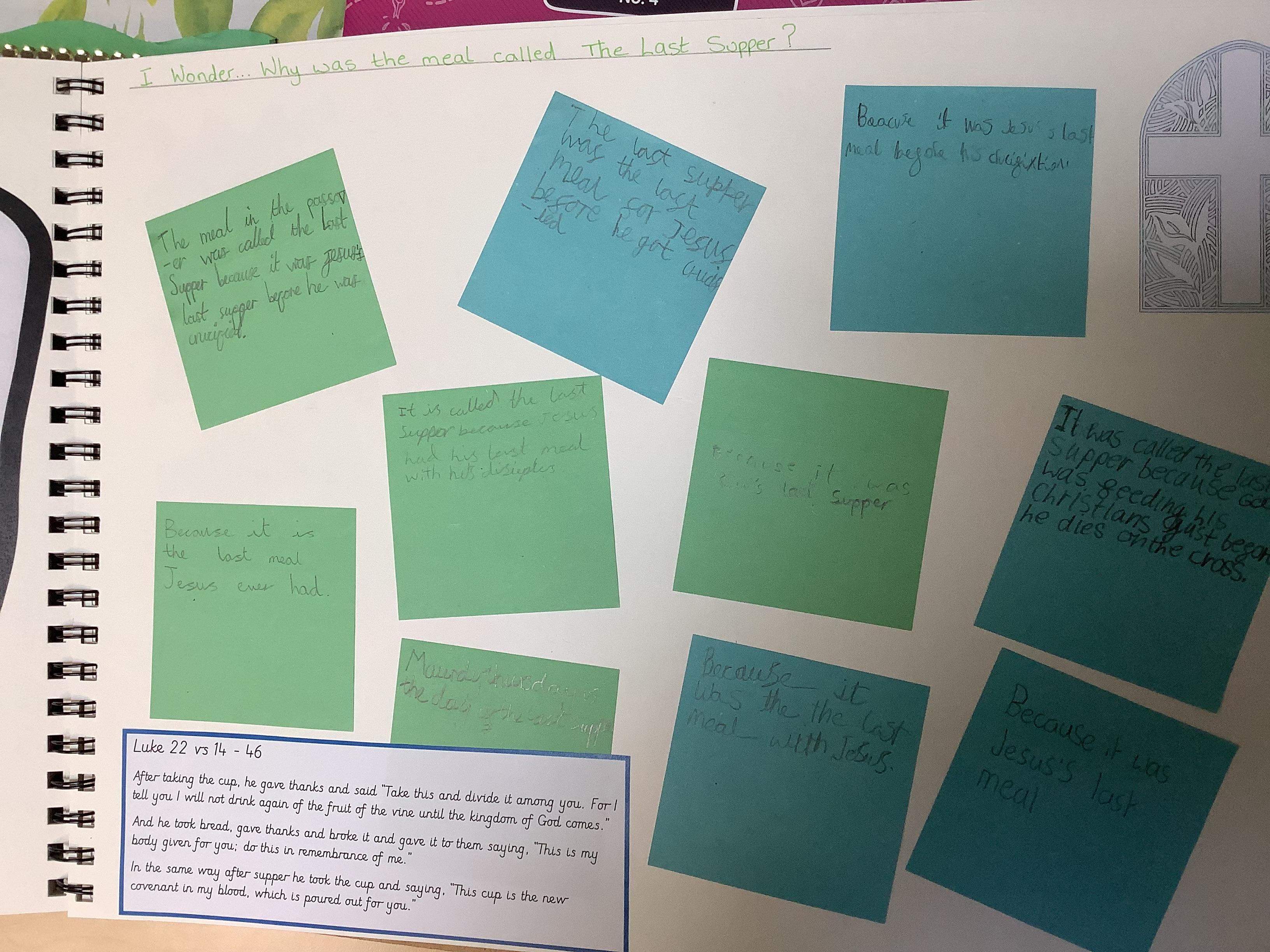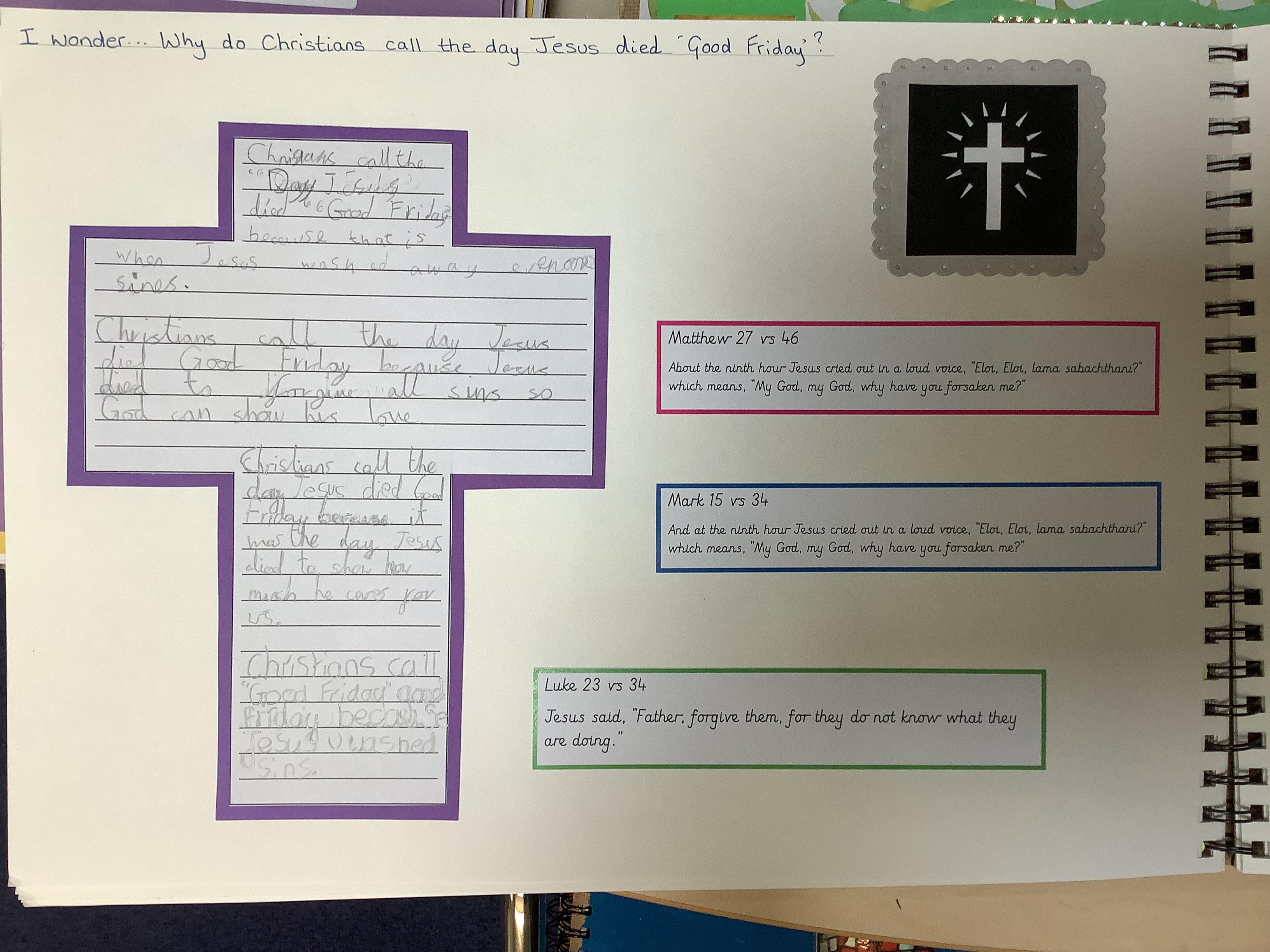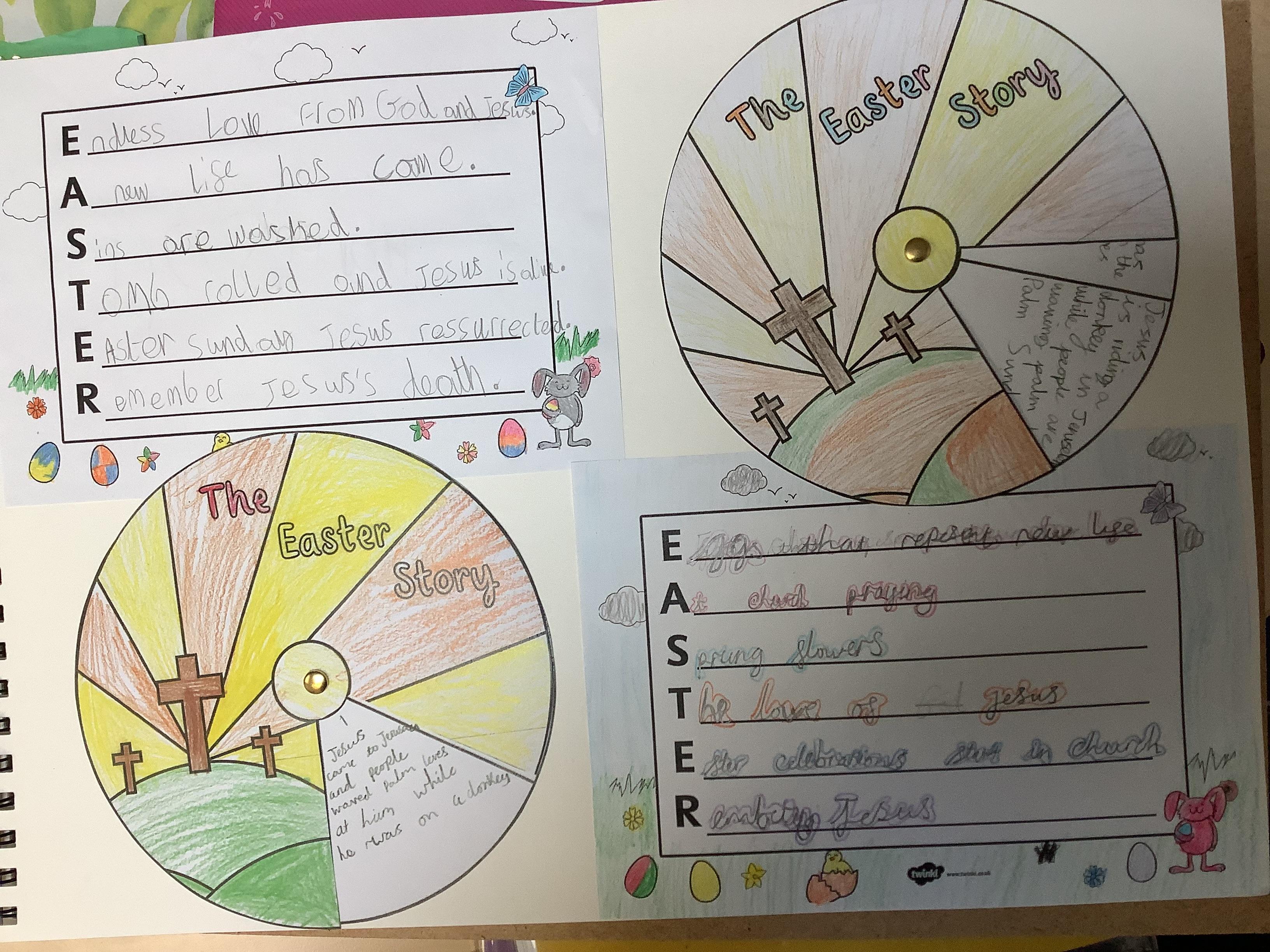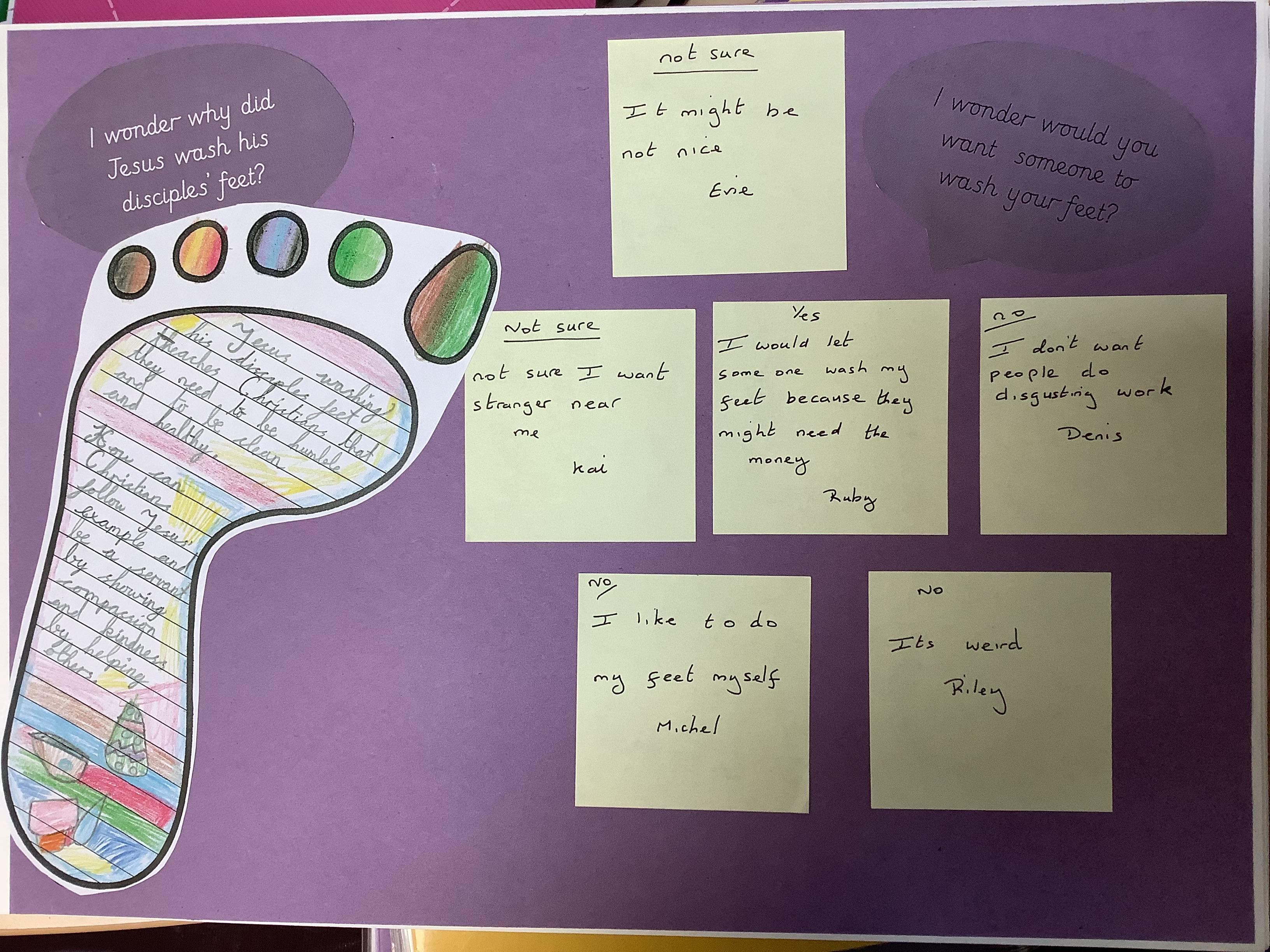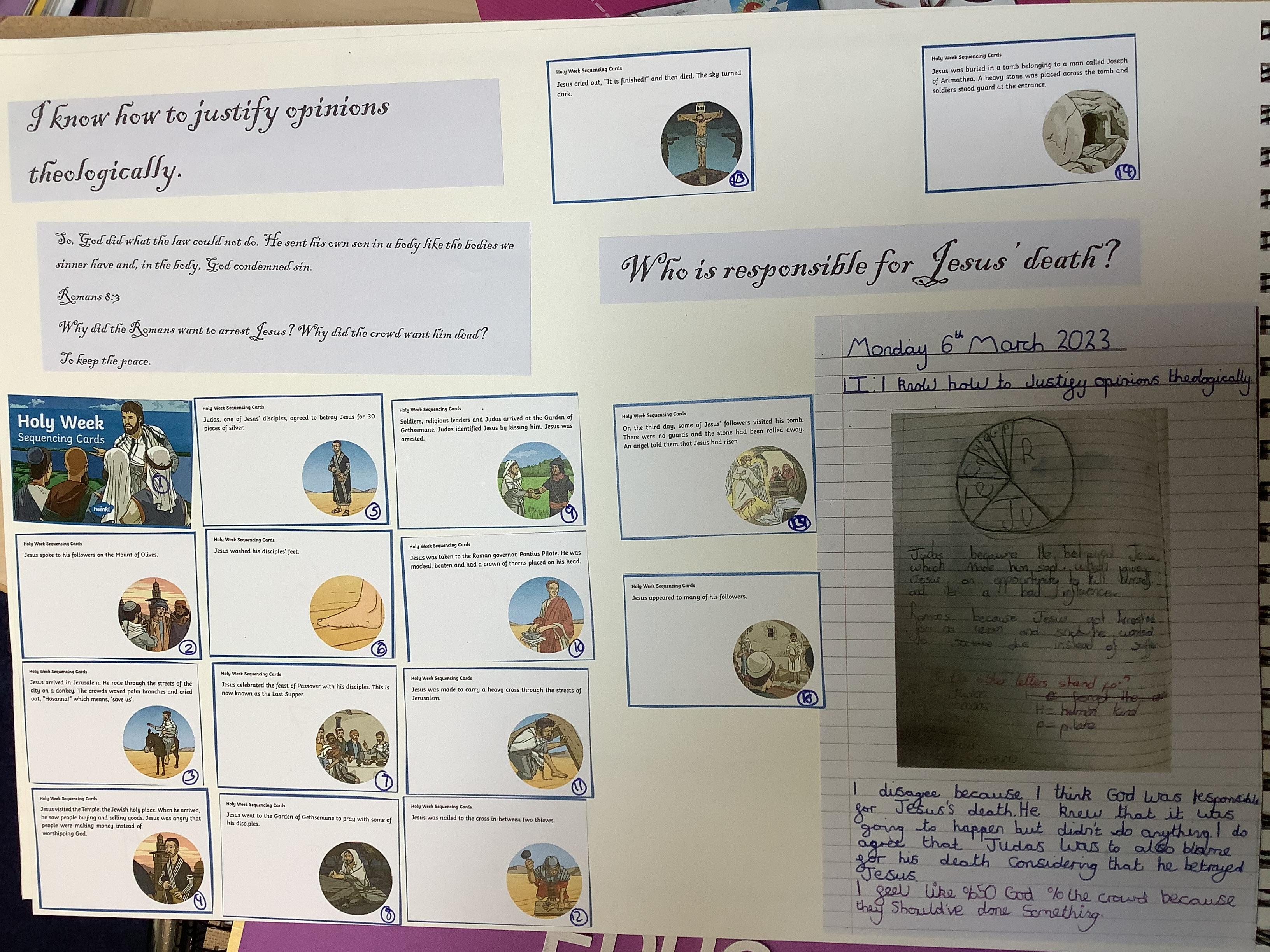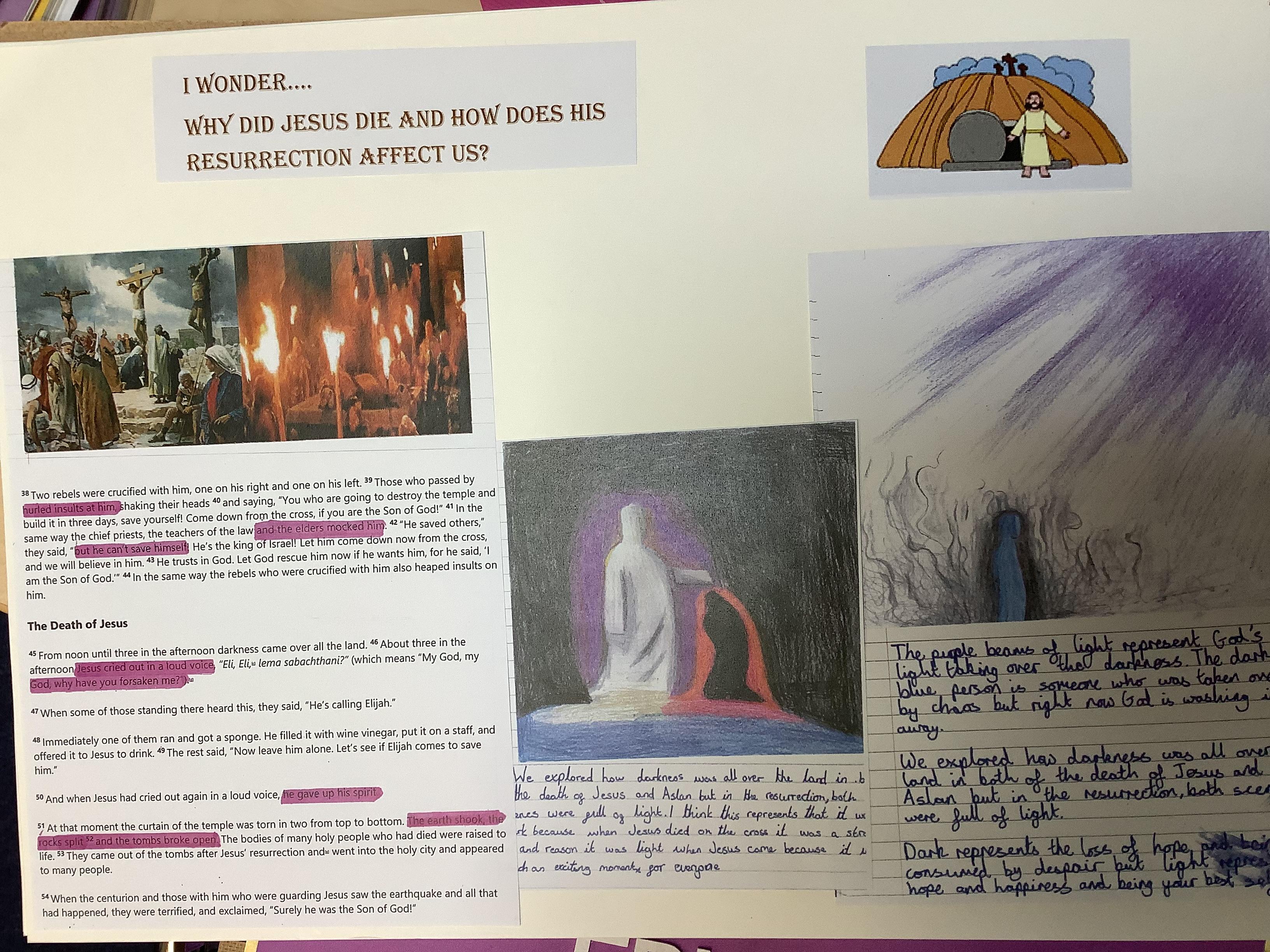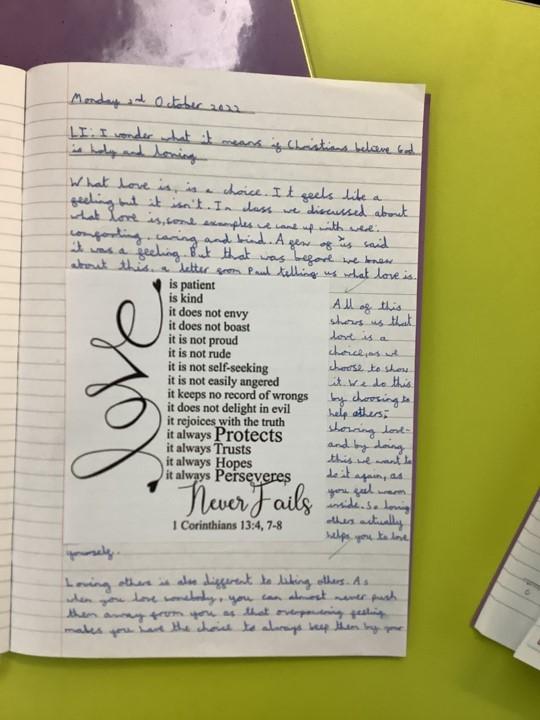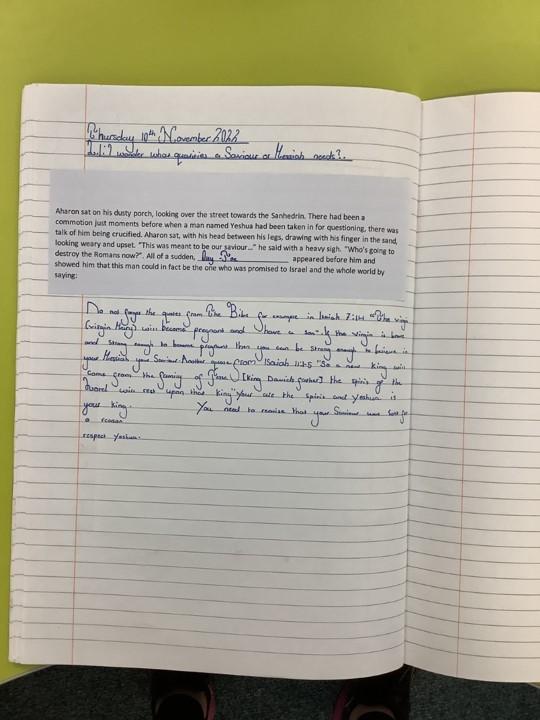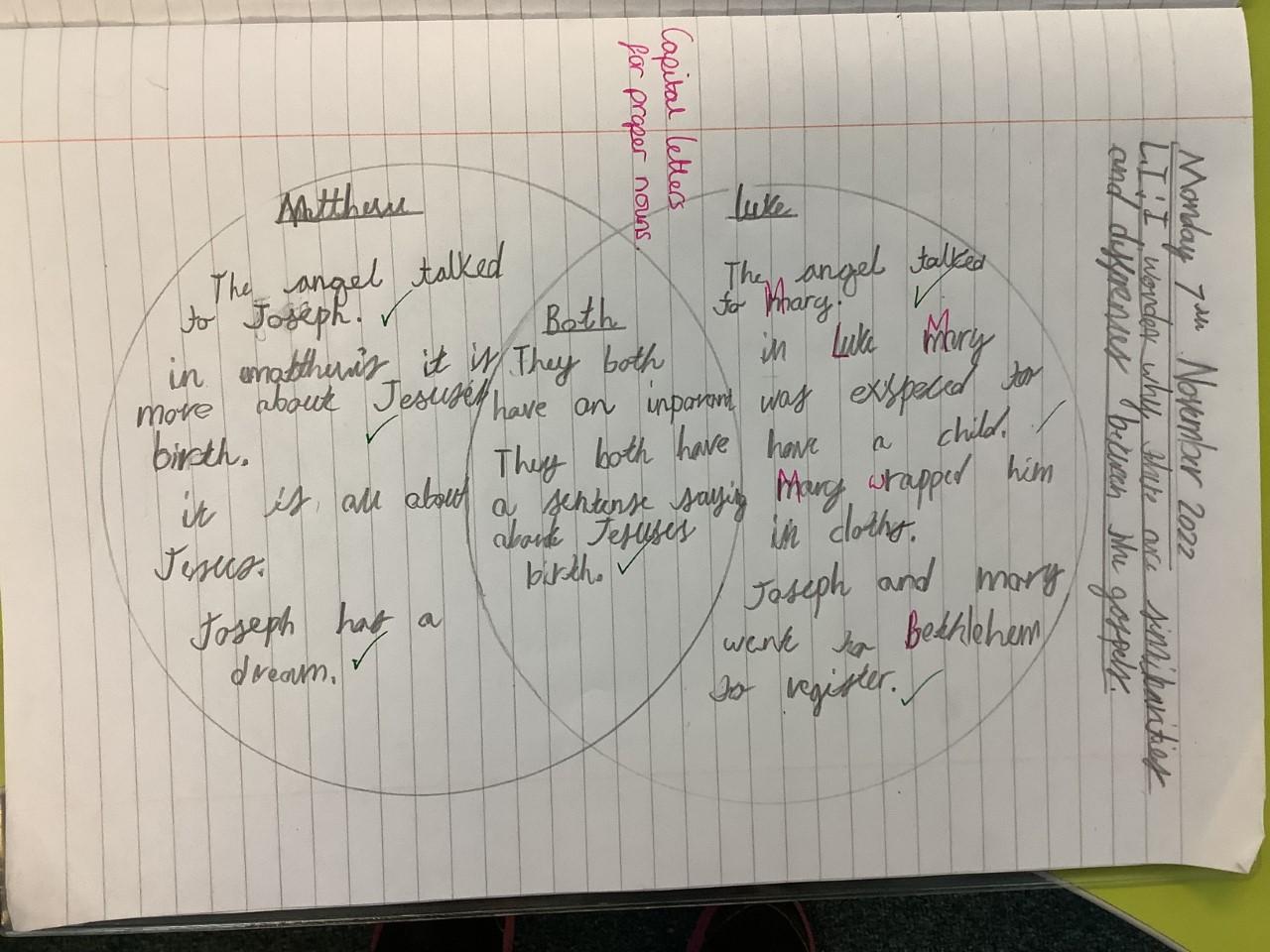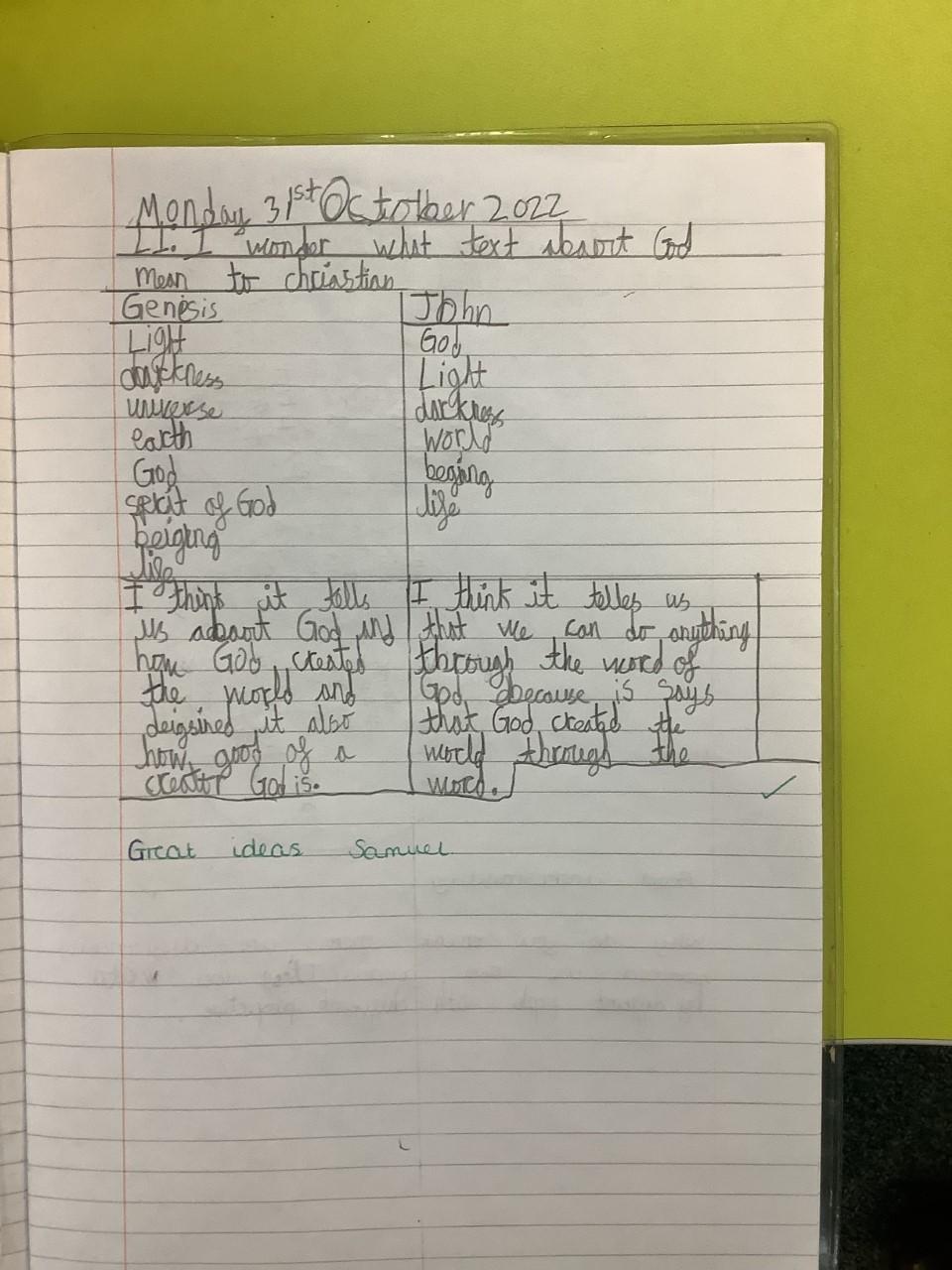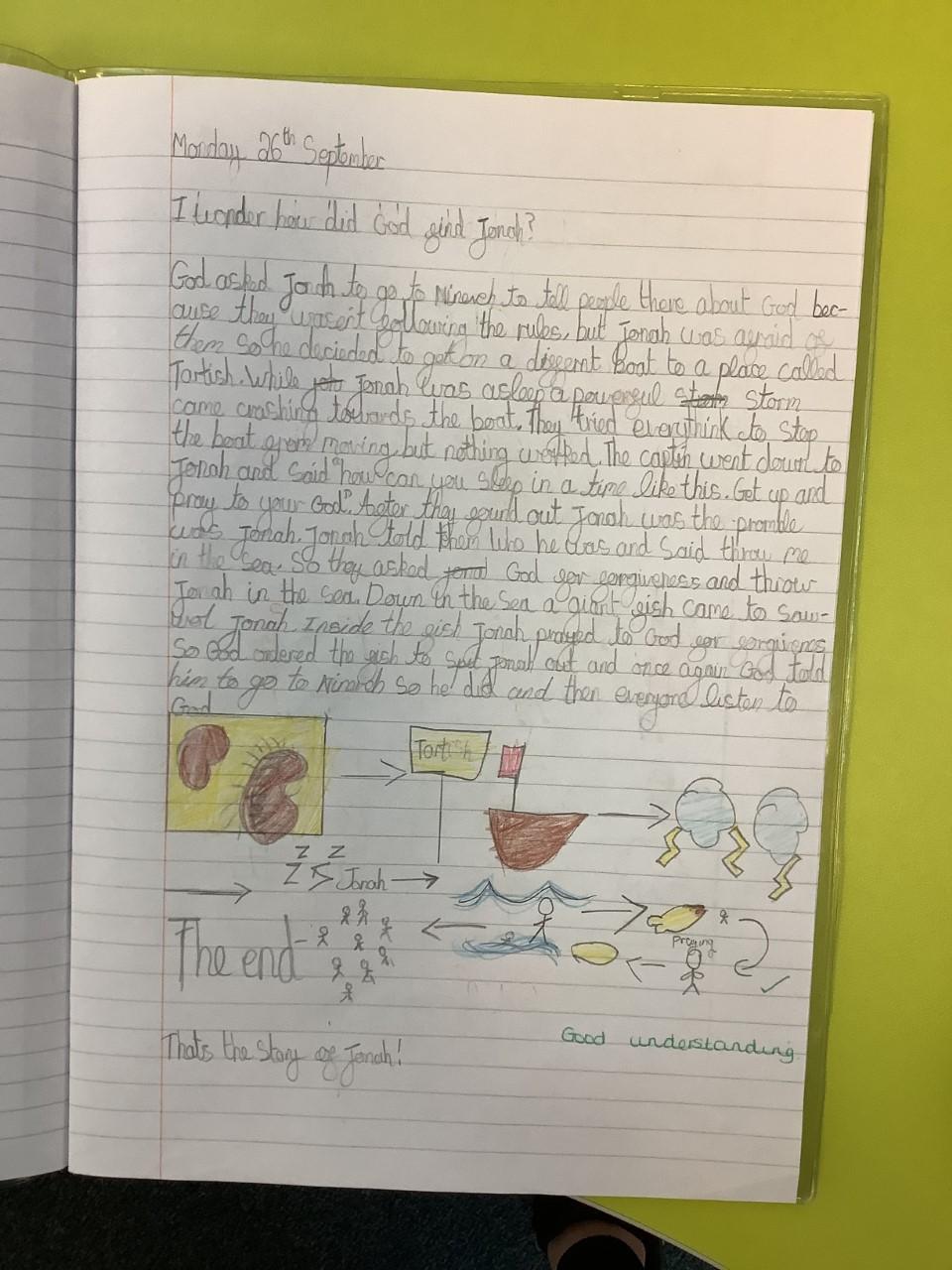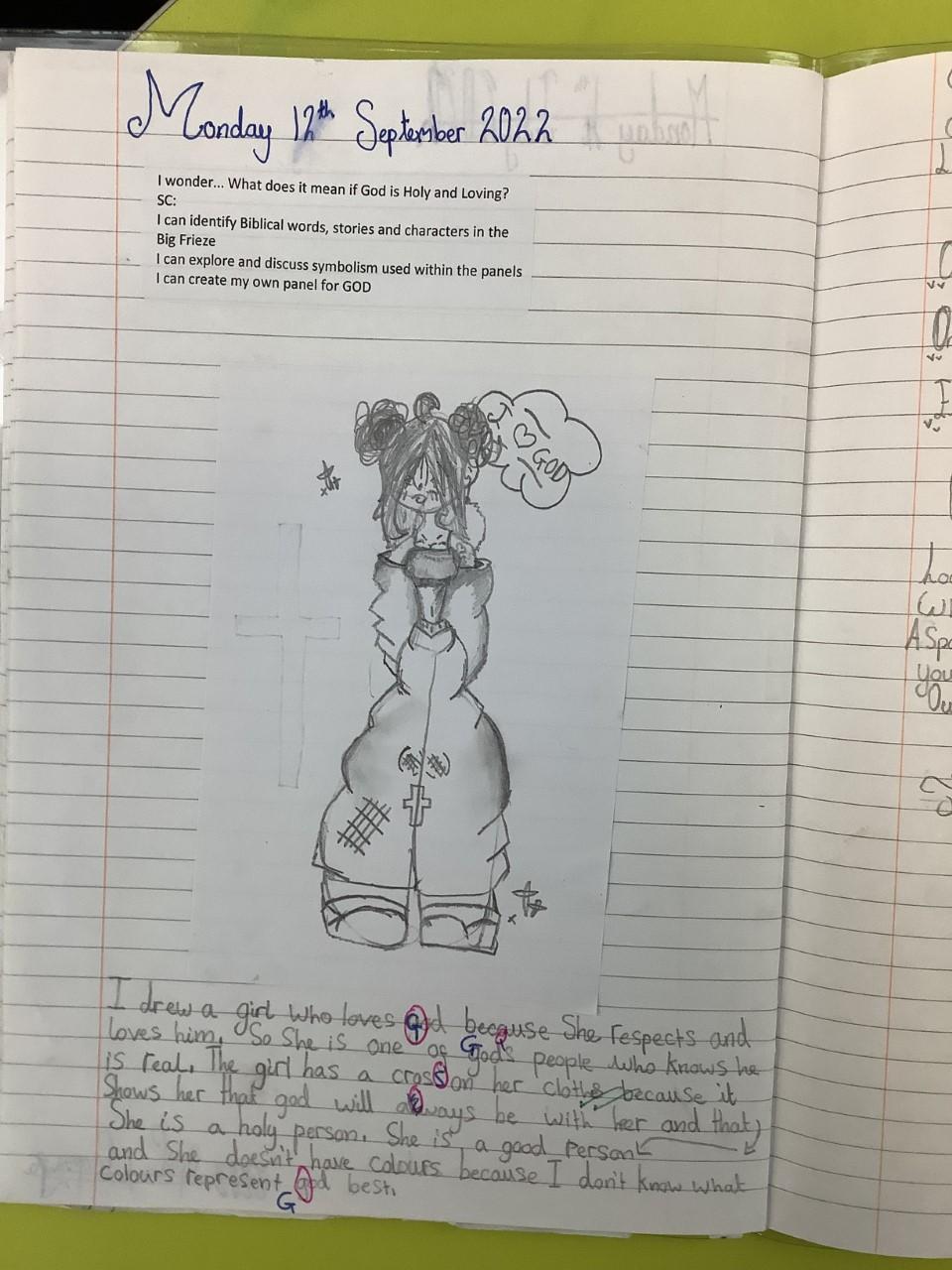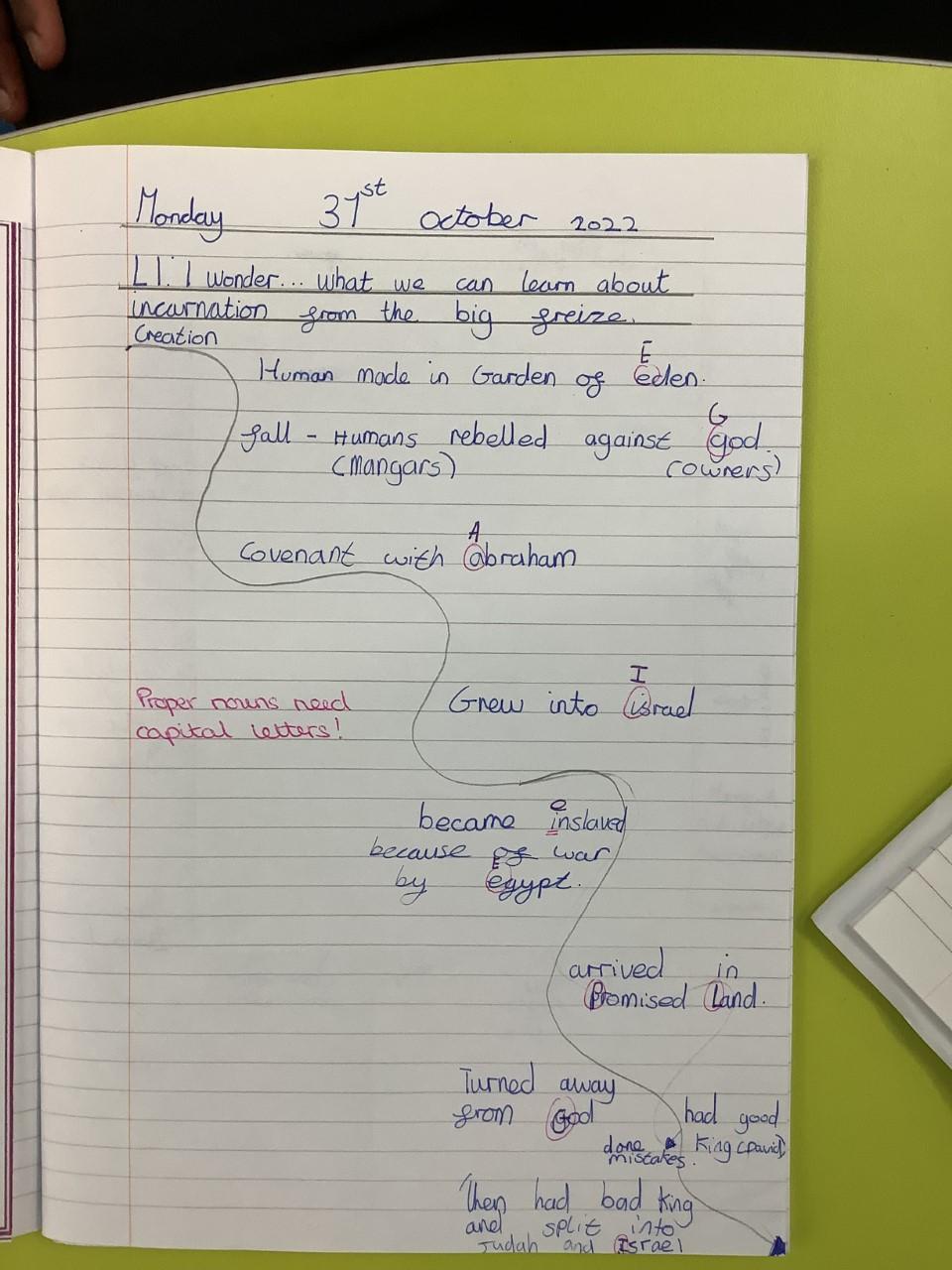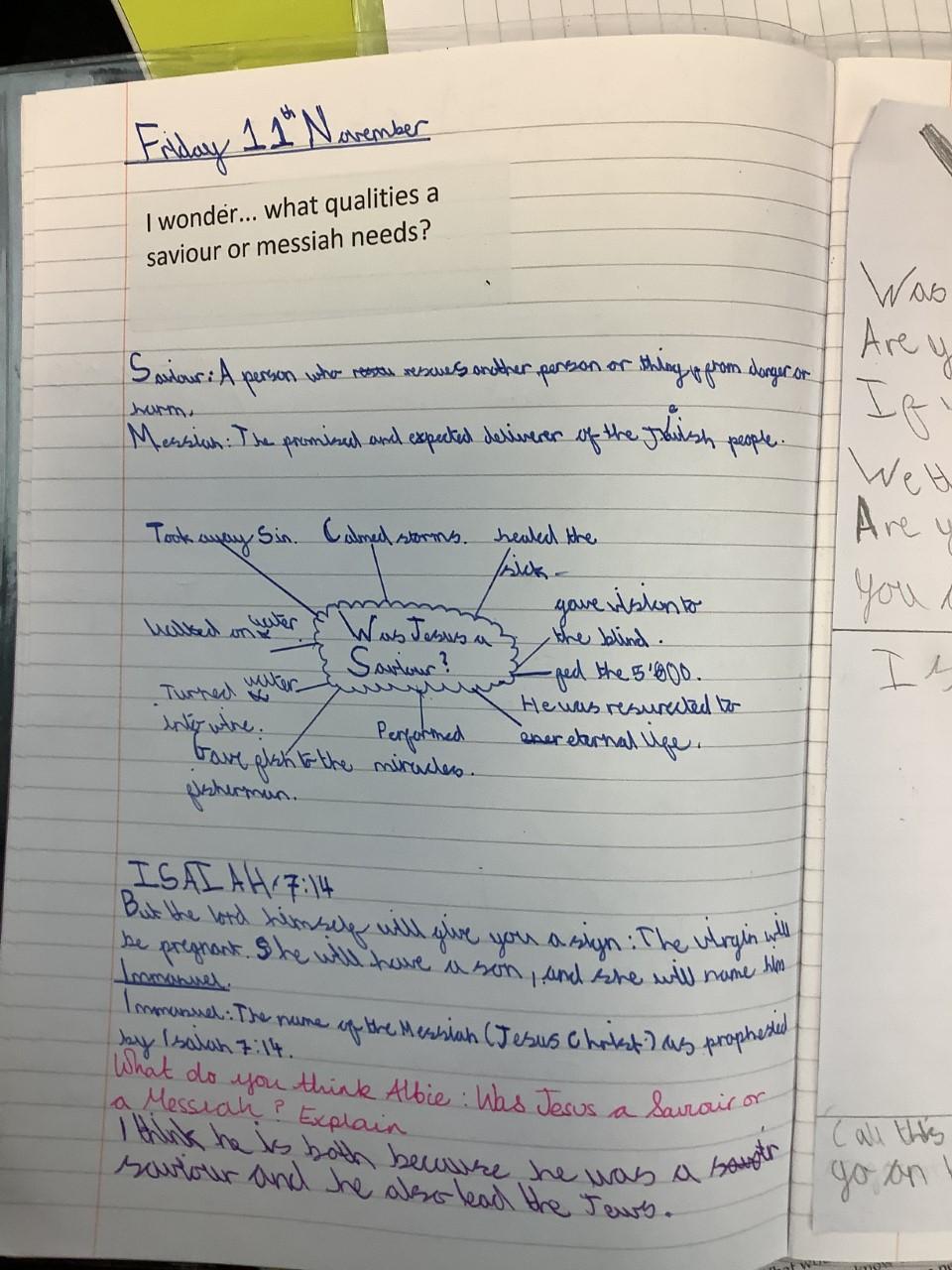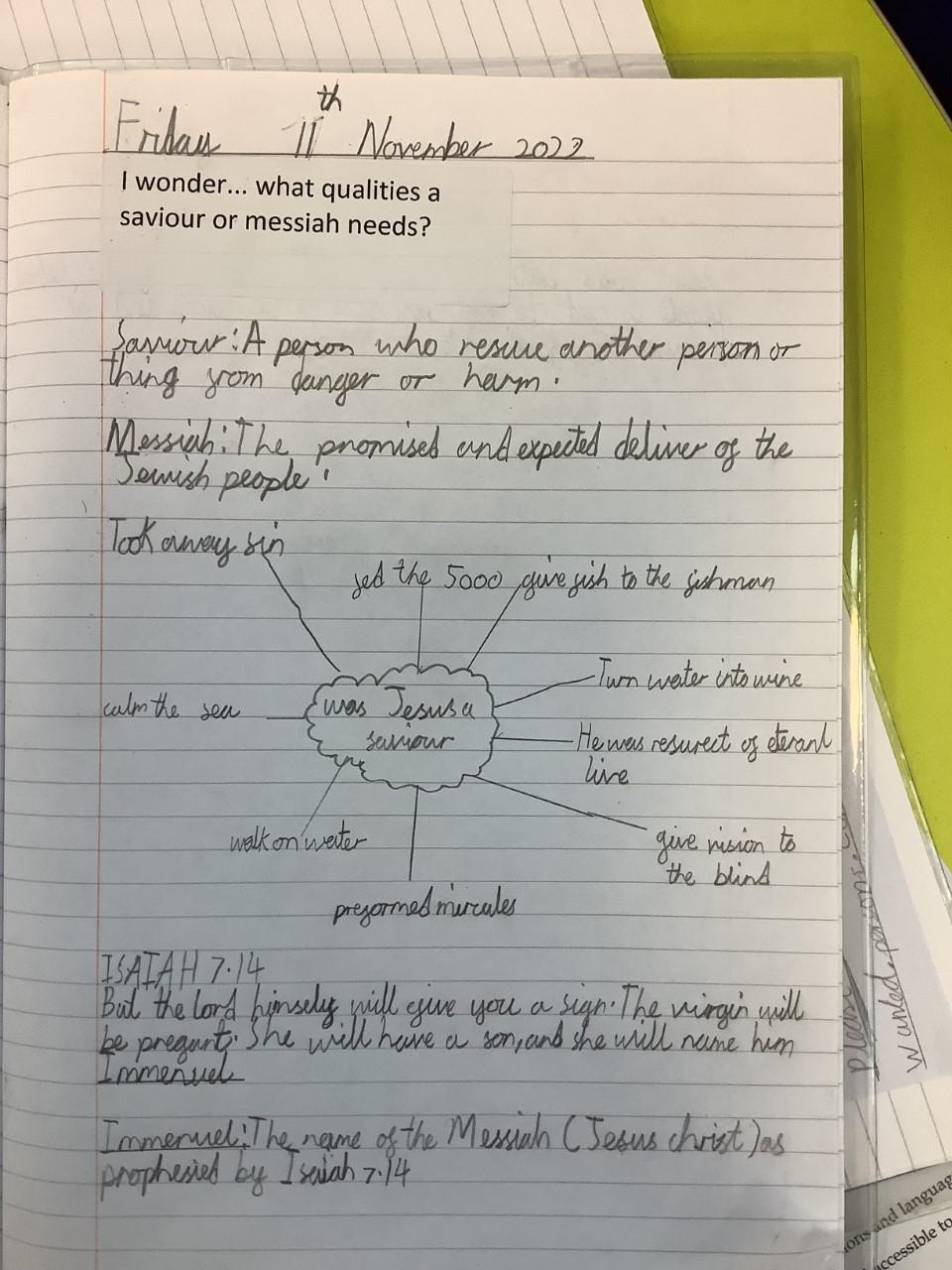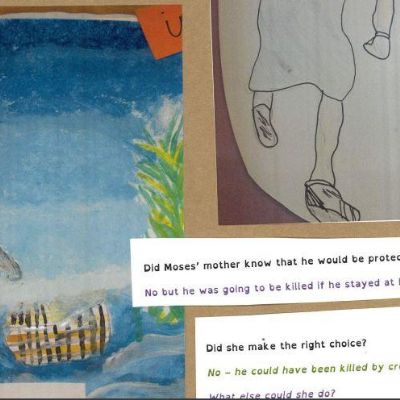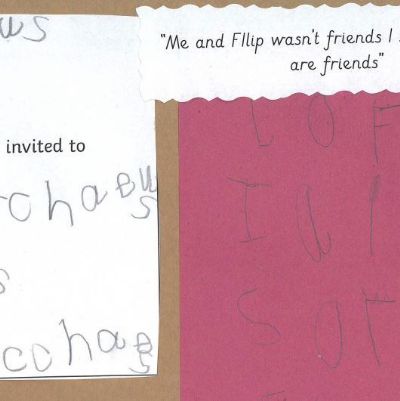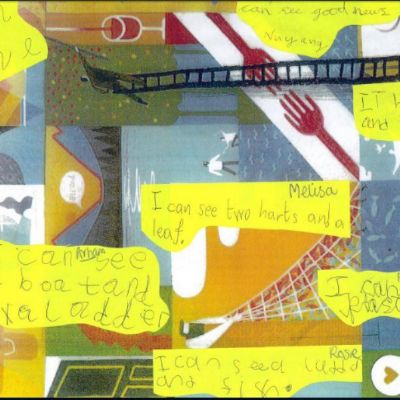RE Curriculum
...God’s love and care guides us along our spiritual path, making us a strong, resilient and proud community ...
RE Lead: Mrs Eades
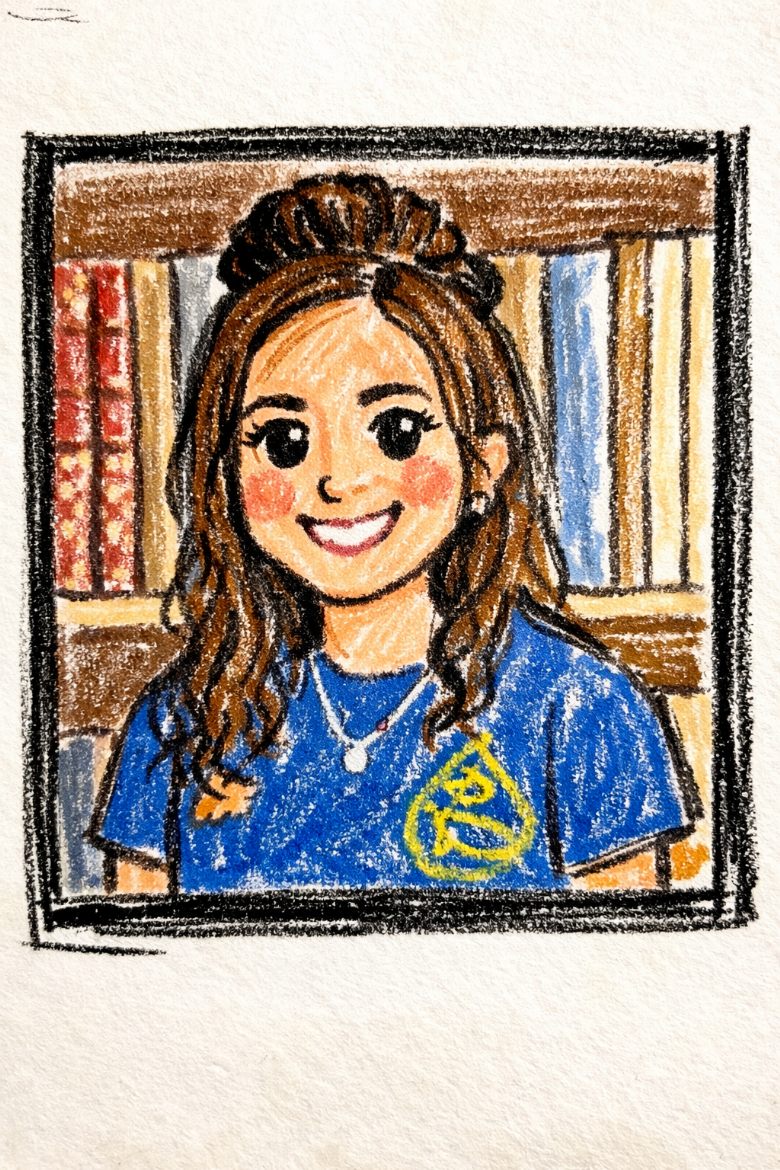
Statement on the RE Scheme of Work: Understanding Christianity
Our Religious Education (RE) scheme of work, "Understanding Christianity," is designed to provide pupils with a comprehensive and engaging exploration of Christian beliefs, practises, and values. This curriculum aligns with our school’s vision of nurturing our diverse pupils with kindness and compassion, helping them to value themselves and others.
Key Features of the Understanding Christianity Scheme:
-
Substantive Knowledge: The curriculum focuses on essential Christian concepts, such as God, creation, and redemption, allowing pupils to build a robust understanding of the faith's core tenets.
-
Diverse Perspectives: Recognising the diverse backgrounds of our pupils, the scheme incorporates various representations of Christianity, ensuring that all pupils can relate to the content and see themselves reflected in their learning.
-
Critical Thinking: Through engaging questions and discussions, pupils are encouraged to think critically about religious beliefs and their relevance to contemporary society, fostering a deeper understanding of their own beliefs and those of others.
-
Integration of Skills: The scheme emphasises the development of key skills, such as interpretation of religious texts, analysis of different viewpoints, and the ability to articulate personal reflections on faith and spirituality.
-
Community Engagement: We aim to connect classroom learning with the wider community, encouraging pupils to engage with local faith communities and participate in collective worship, thereby enhancing their spiritual development.
-
Assessment and Progression: Regular assessments are embedded within the curriculum to track pupil progress, ensuring that all learners, including those from disadvantaged backgrounds, are supported in achieving age-related expectations.
By implementing the Understanding Christianity scheme, we strive to create a learning environment where pupils not only acquire knowledge about Christianity but also develop respect for diverse beliefs, fostering a strong, resilient, and proud community ready to thrive together.
At Archbishop Courtenay Primary school, we ensure RE provides a coherent, progressive and challenging approach to the teaching of Christianity within the context of the wider exploration of the diversity of religion, enabling our children to flourish. RE is deemed a core subject within our school curriculum and it has a vital role in developing religious literacy and deepening pupils' understanding of Christianity, in all its forms, and fostering appreciation and understanding of other faith traditions. RE is non-confessional and treated as an academic subject in its own right.
As in all areas of the curriculum, we promote a love of learning, wisdom, hope and dignity within our Christian community and aspire to enable children to discover life in all its fullness which Jesus offers.
We provide a safe space in our RE curriculum for pupils to critically reflect on their own religious, spiritual and philosophical convictions, actively teaching respect and tolerance for one other's beliefs. Religious Education in our school also helps children to learn not only about their own religion and about other people's, but also to learn from religions, skills of:
- Consideration
- Tolerance
- Empathy
- Respect
- Forgiveness
- Friendship
British Values
At Archbishop Courtenay Primary school, we understand clearly our responsibility in preparing children for future opportunities, responsibilities and experiences of later life, laying the foundations so that they can take their place successfully in modern British society. We promote a respect for and understanding of different faiths and cultures. The spiritual, moral, social and cultural development of each child is central to everything that we do as a school and central to our school vision. This is evidenced through our teaching and learning, our inclusive environment and through the many opportunities provided for our children to understand democracy, law, liberty, mutual respect and tolerance.
Planning
We use the Understanding Christianity project to support the teaching of Religious Education. We aim to support pupils to develop their own thinking and understanding of Christianity, the world and their place in the world. We teach the story of the Bible as a 'Big Story' of salvation. Throughout the course of their learning journey at ABC, our children learn and engage with Bible stories and theological concepts, exploring what these mean for Christians today and reflecting how these relate to children's own understanding.
We also use projects from the Inspiring RE resources to embed learning further, encourage pupils to think critically about their own beliefs and spirituality and gain a deeper understanding of key concepts.
We ask 'Big Questions' to develop children's spirituality and a sense of awe and wonder in every aspect of their lives. We guide them as they think about the impact and connection that Christianity has on Britain's cultural heritage and the lives of people worldwide. In addition to this, we use the phrase ‘I wonder…’ to help deepen our children’s spiritual journey.
We enable children to develop a sound knowledge not only of Christianity but also of other world religions such as Judaism, Islam, Hindu Dharma and Sikhi and especially those that are the main faiths of children within our school enabling children to express their personal ideas and insights. We celebrate the wide range of faiths that we find within our school, community and within the wider world.
Assessment
Children are monitored on a regular basis to check progress, teachers identify and fill gaps in children’s knowledge. We encourage all pupils to take responsibility for their own and their peers learning. Teacher assess and monitor progress through their teaching and questioning to enable then to adjust accordingly through planning to meet the children’s individual learning needs. At the end of the unit, teachers assess children’s progress towards the end of key stage national curriculum objectives. We use this to support our identification of gifted and talented pupils.
Collective Evidence
At Archbishop Courtenay Primary School, we believe that all pupils should have the opportunities to share their pupil voice. We do this in a number of ways. The curriculum allows opportunities for pupils to develop the skills, knowledge and understanding when using their pupil voice. The subject leader finds out pupil’s opinions about the teaching of R.E and the content covered through interviewing selected pupils during lesson observations. The subject leader acts upon the comments and suggestions of pupils wherever possible.
Enrichment Opportunities
- Visits to All Saint’s Church
- Weekly Assembly led by a church representitive
- Hindu Dharma Workshop for LKS2
- Hindu Dharma whole school assembly
- UKS2 Mosque Visit
- Family Trust workshop on the Trinity
Targets
- Broaden children’s understanding of injustice and encourage them to reflect on how their actions can have an impact on the world around them.
- Ensure consistency within all year groups in the way RE is assessed, ensuring that assessment criteria is clear and follows progression of skills.
- Ensure children engage with key vocabulary throughout each unit of work and recall this key vocabulary when required.
Impact
This will be monitored through the collection of pupil and staff voices and any adjustments to the programme made where appropriate
As you will see from our long-term plans, we teach Christianity for four terms. Two terms are dedicated to teaching an understanding of World Faiths, including Islam, Judaism, Hindu Dharma and Sikhi. We celebrate the wide range of faiths that we find within our school, community and within the wider world.
- Understanding-Christianity-Frieze-Panels.pdf
- Religious Education - The reason for Understanding Christianity and Big Frieze.pdf
- Right to withdraw child from all or part of Religious Education (RE)
- Withdrawal from RE Lessons Letter
